lecture 2 plant anatomy
1/64
There's no tags or description
Looks like no tags are added yet.
Name | Mastery | Learn | Test | Matching | Spaced |
|---|
No study sessions yet.
65 Terms
characteristics of plants
eukaryotic, multi, photo autotrophs, chlorophylls a and b, carotenoids, starch storage, cellulose walls, alternation of generations
sporophyte dominant plants
diploid dominant life cycle; meiosis produces gametes
sporophyte dominant examples
ferns, vascular plants
gametophyte dominant plants
haploid dominant; mitosis produces gametes
gametophyte dominant examples
mosses, nonvascular plants
adaptations to land: water exchange
cuticle (waxy covering) and stomata
adaptations to land: vascular system
support against gravity; xylem transports water up, phloem transports photosynthetic products down and across
adapatations to land: structural support
lignin, found in secondary cell walls of woody plants
adaptations to land: pollen transport
animals or wind
adaptations to land: zygote kept moist in
archegonia
nonvascular, spore bearing
bryophyes; mosses, liverworts, and hornworts
vascular, spore bearing
lower tracheophytes; ferns, whisk ferns, horsetails, club mosses
vascular, seed bearing
higher tracheophytes, pines, cycads, ginkgos, gnetophytes, flowering plants
bryophytes environment
must grow in moist environments (pacific NW); need water film for sperm motility; lack waxy cuticle
bryophytes anatomy
lack vascular tissue, rhizoids - limits growth; homosporous, no true roots, stems, leaves;
bryophytes reproduction
sexually
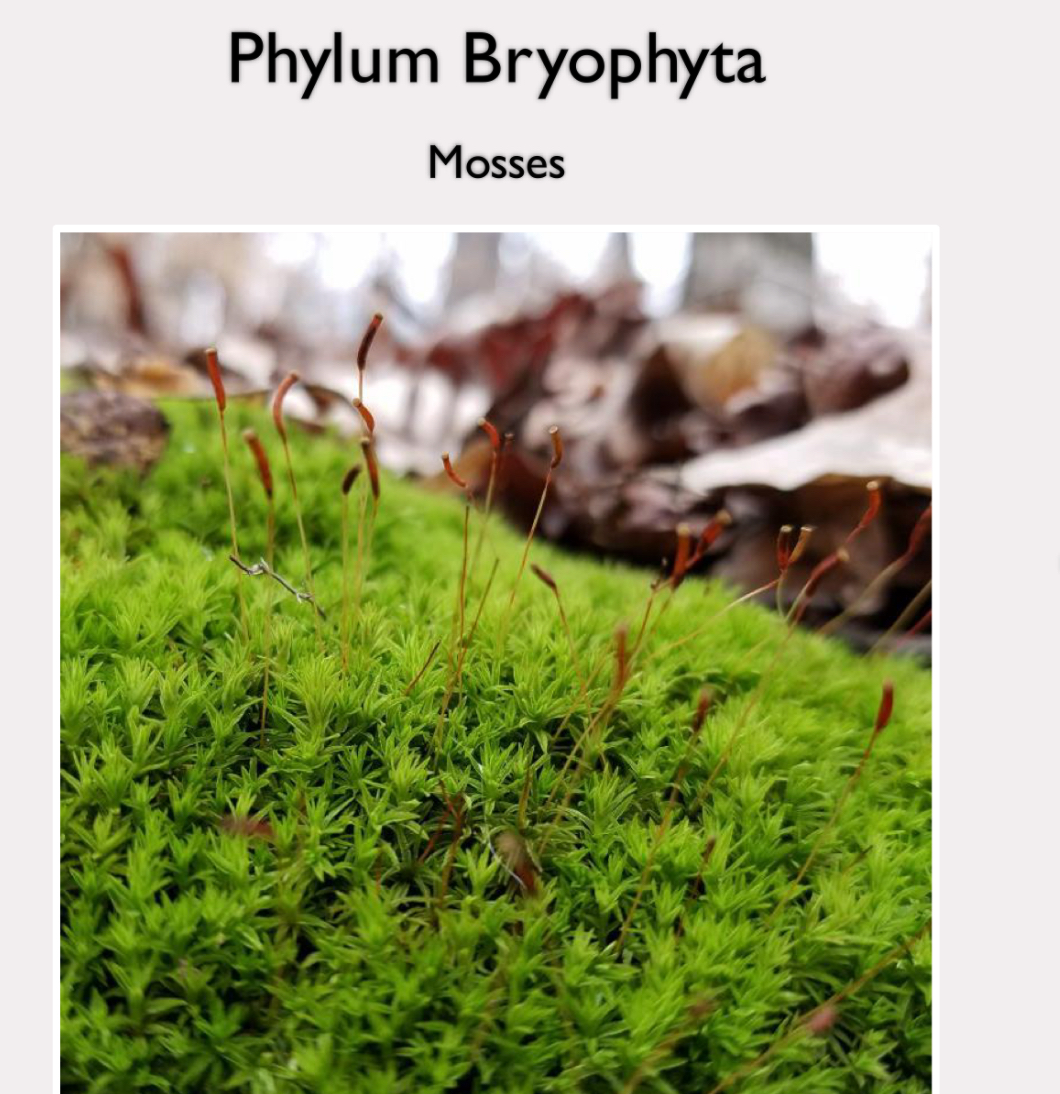
bryophytes examples
Mnium
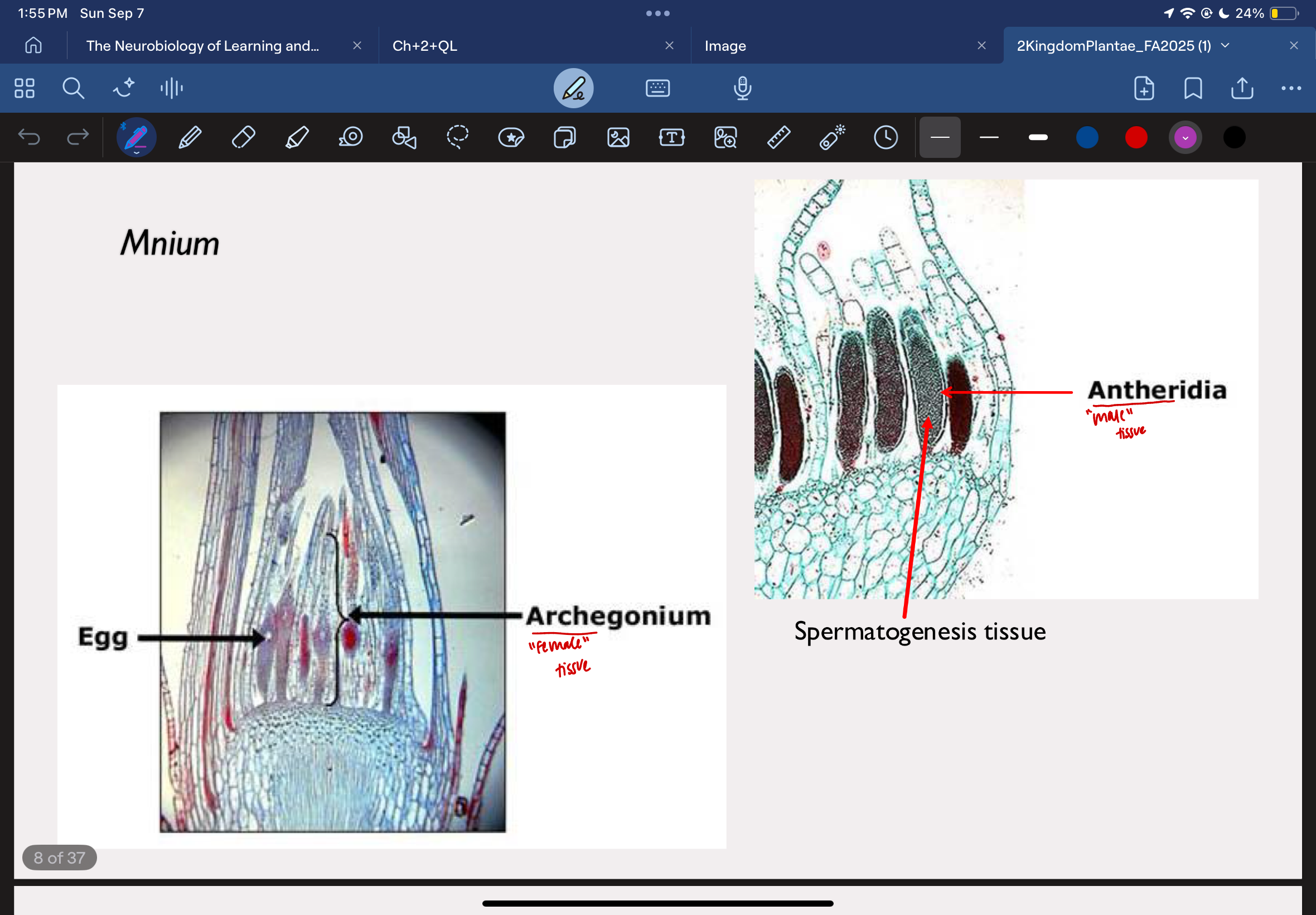
moss protonema
bryophyte
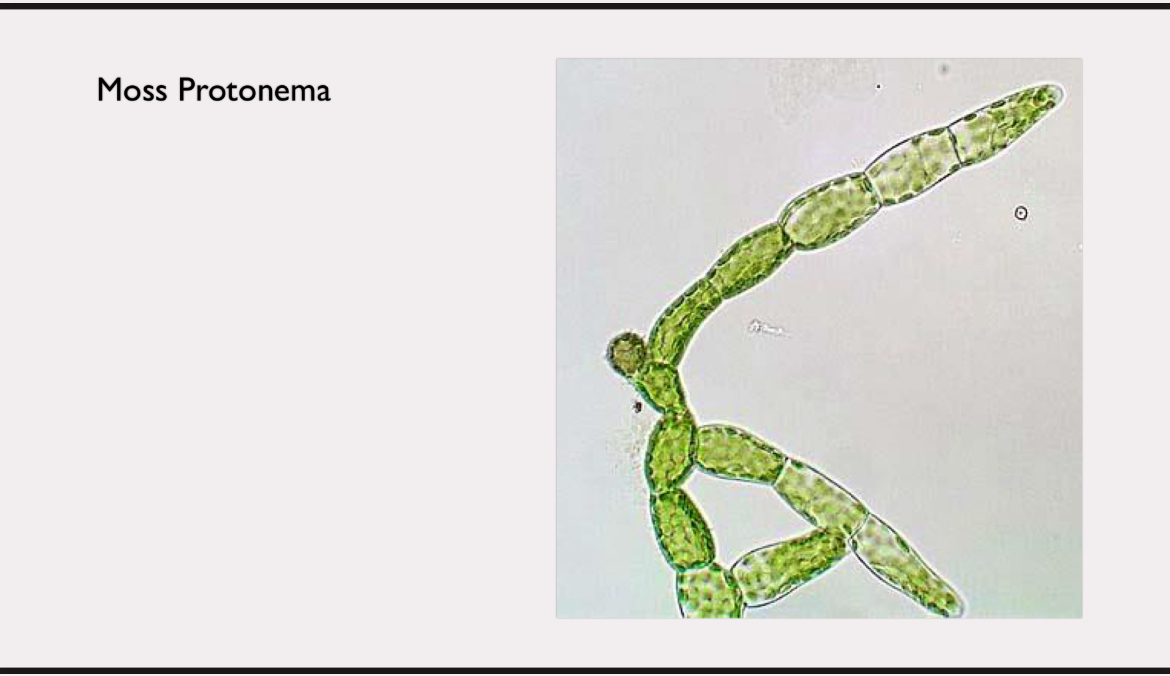
Polytrichium capsule
bryophyte
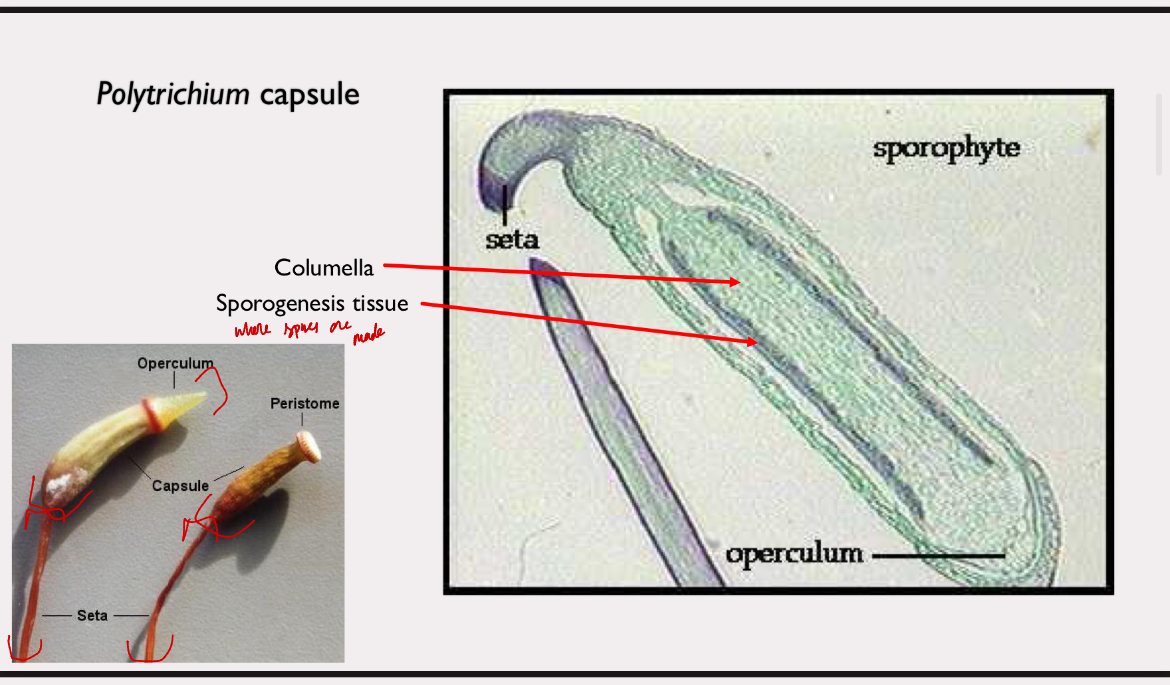
Sphagnum leaf
bryophyte
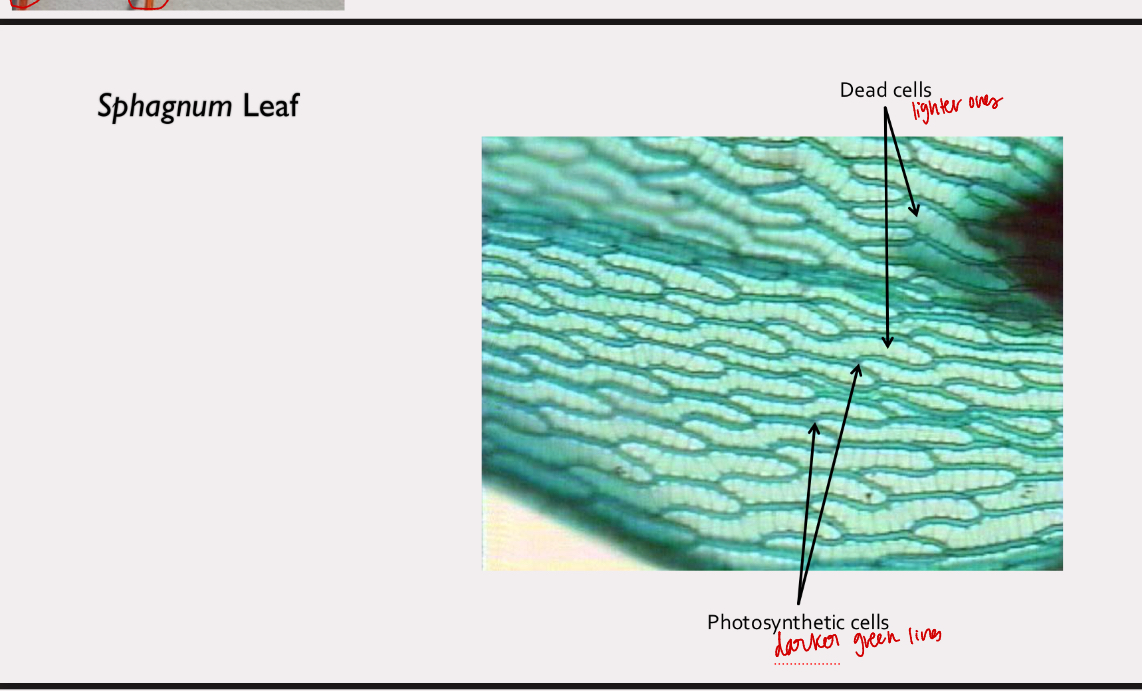
bryophytes - liverworts
phylum hepatophyta
reproduce sexually; can be asex by producing gemmae; more primitive than mosses; likely similar to first land plants; flattened leafy like appearance
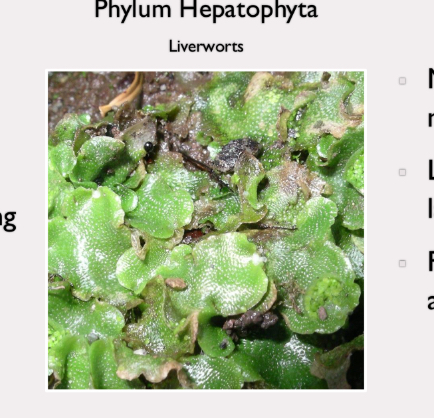
Marchantia
liverwort
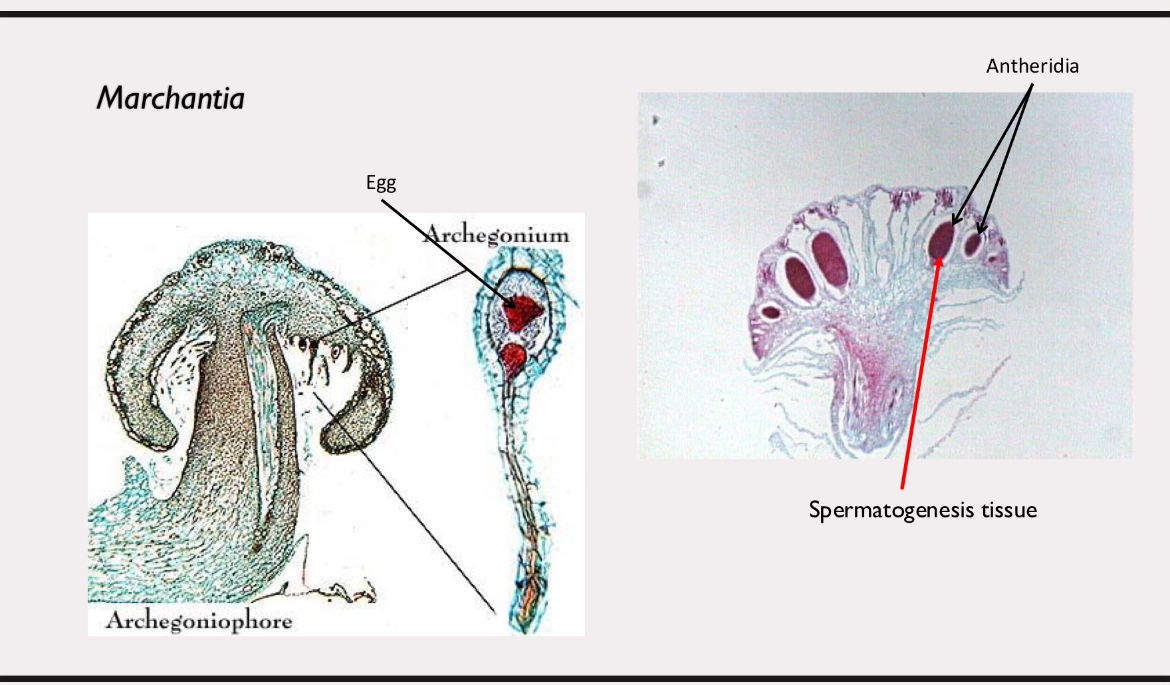
bryophytes - hornworts
phylum anthocerophyta
more closely related to vascular plants than other bryophytes
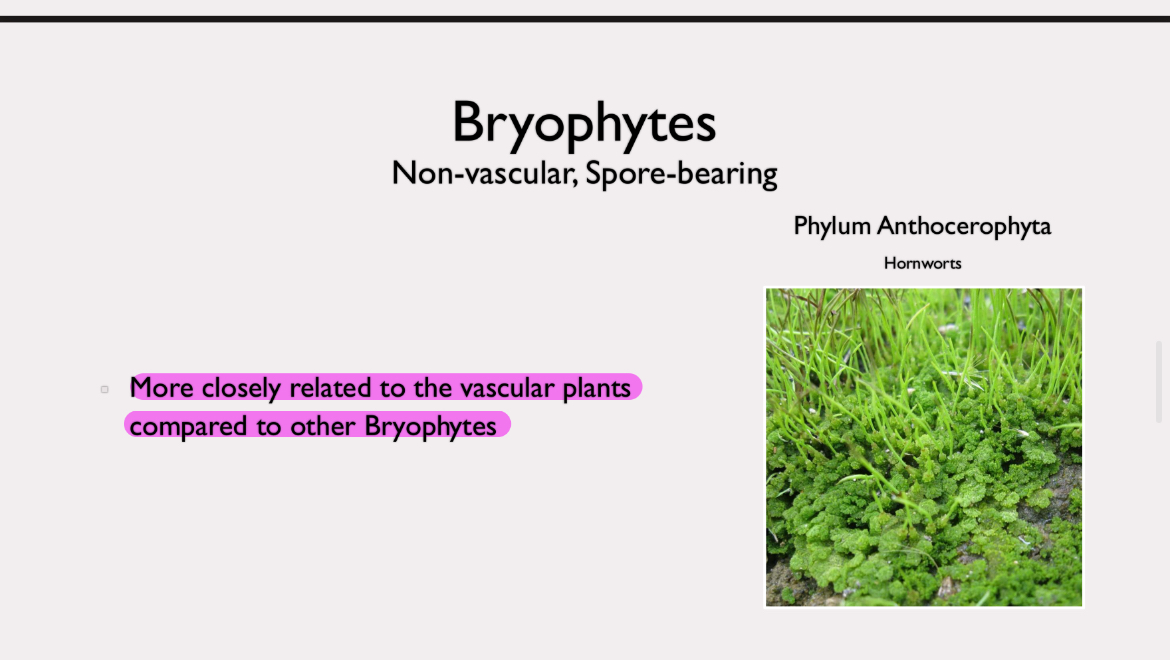
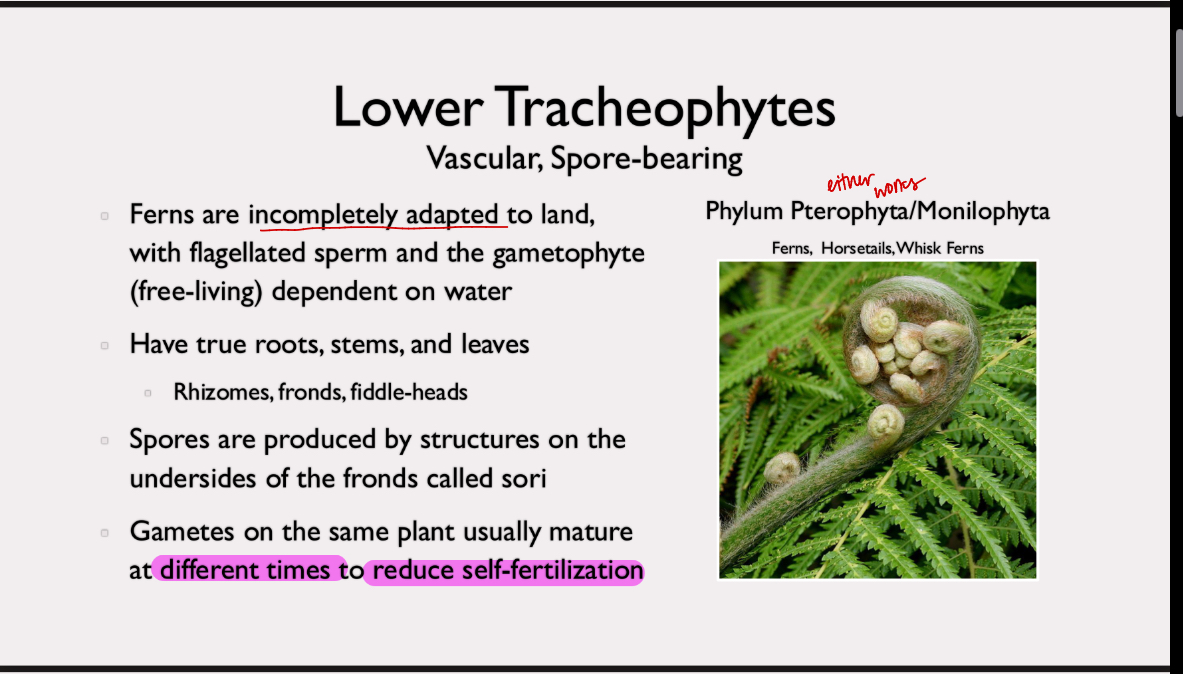
lower tracheophytes
better adapted to land, but need moist environments, need water for sperm motility, have vascular tissue for taller growth and tracheids in xylem; sporophyte dominant life cycle; homosporous - bisexual gametophyte that forms egg and sperm; many have true roots, stems and leaves
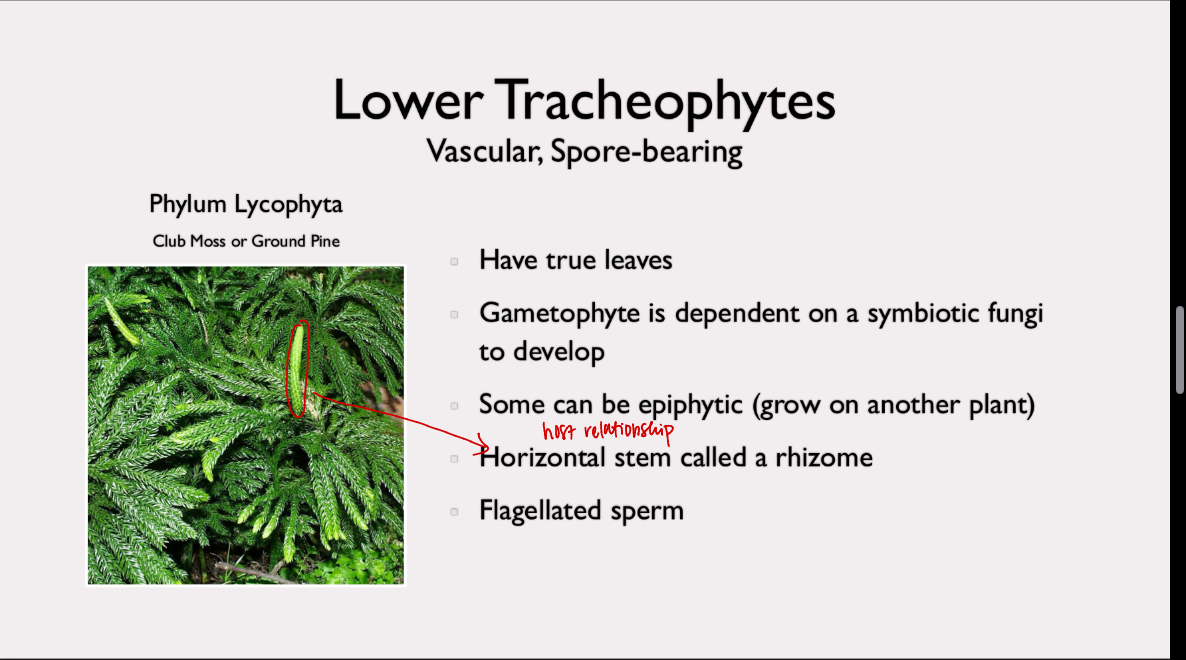
club moss or ground pine
phylum lycophyta
have true leaves; gametophyte is dependent on symbiotic fungi to develop; some can be epiphytic; horizontal stem called rhizome; flagellated sperm
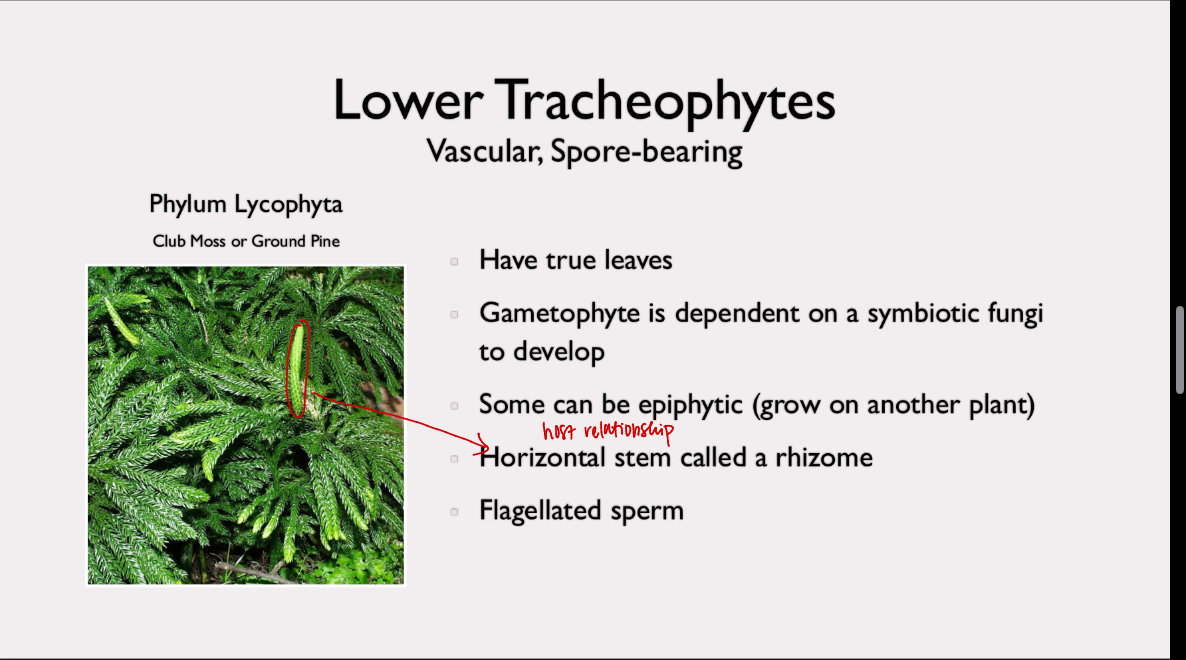
ferns, horsetails, whisk ferns
phylum pterophyta/monilophyta
ferns are incompletely adapted to land, with flagellated sperm and gametophyte depend on water; true roots, stems, and leaves - rhizomes, fronds, fiddleheads; spores produced by structures on undersides of the fronds called sori; gametophys on same plant mature at different times to reduce self fertilization
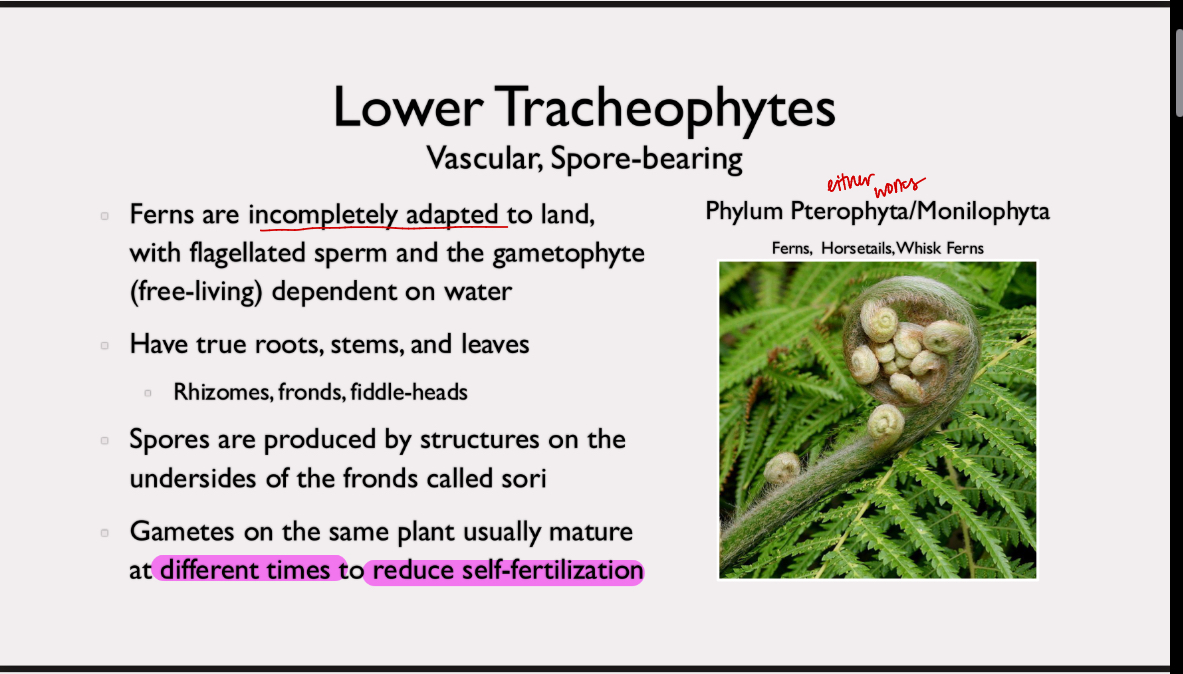
horsetails and whisk ferns
modern horsetails belong to the only surviving genus of Equisetum - called scouring rushes, have true roots, stems, and small leaves; whisk ferns lack true and appear like a green stem with yellow bulbs
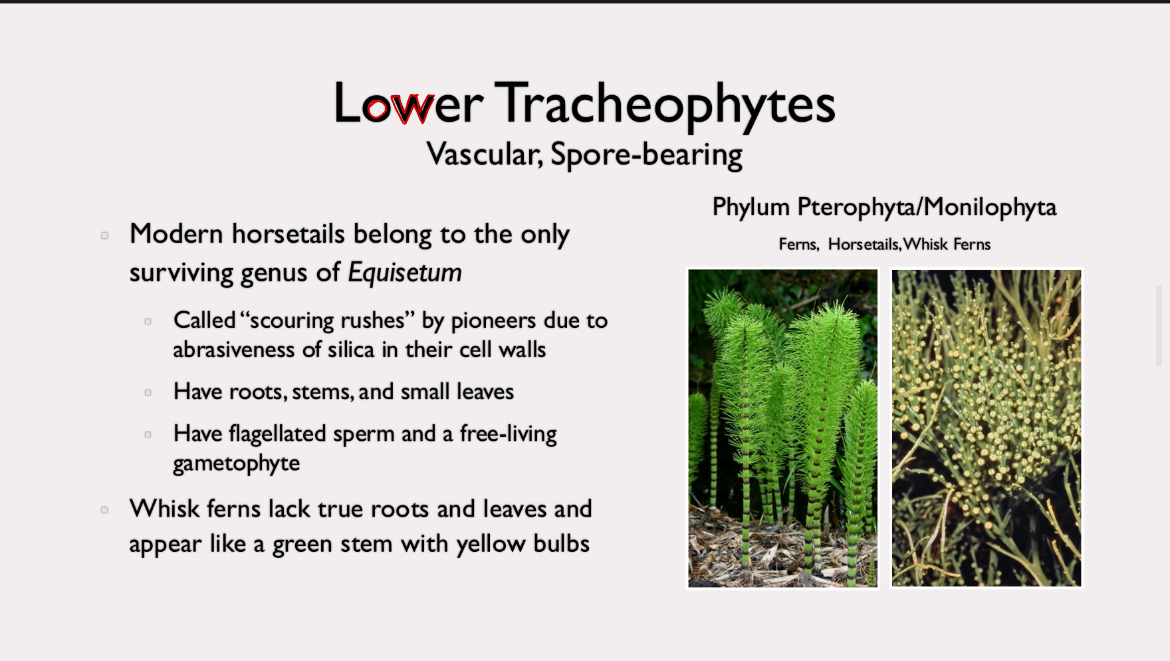
fern sori
lower tracheophytes
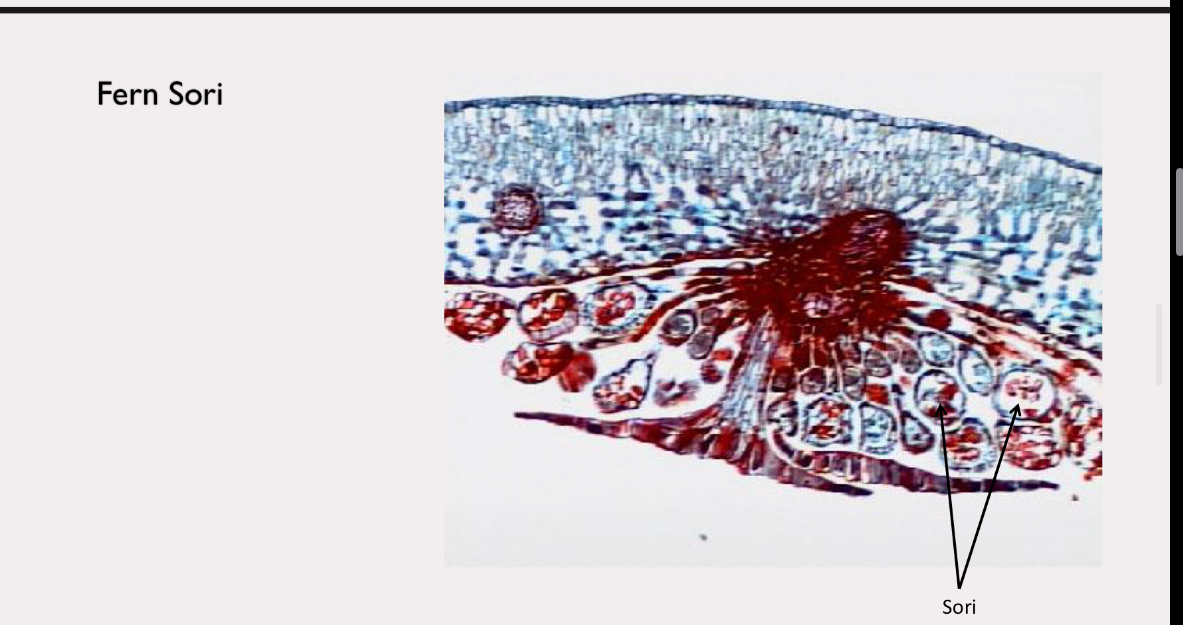
fern atheridia and archegonia
lower tracheophyte
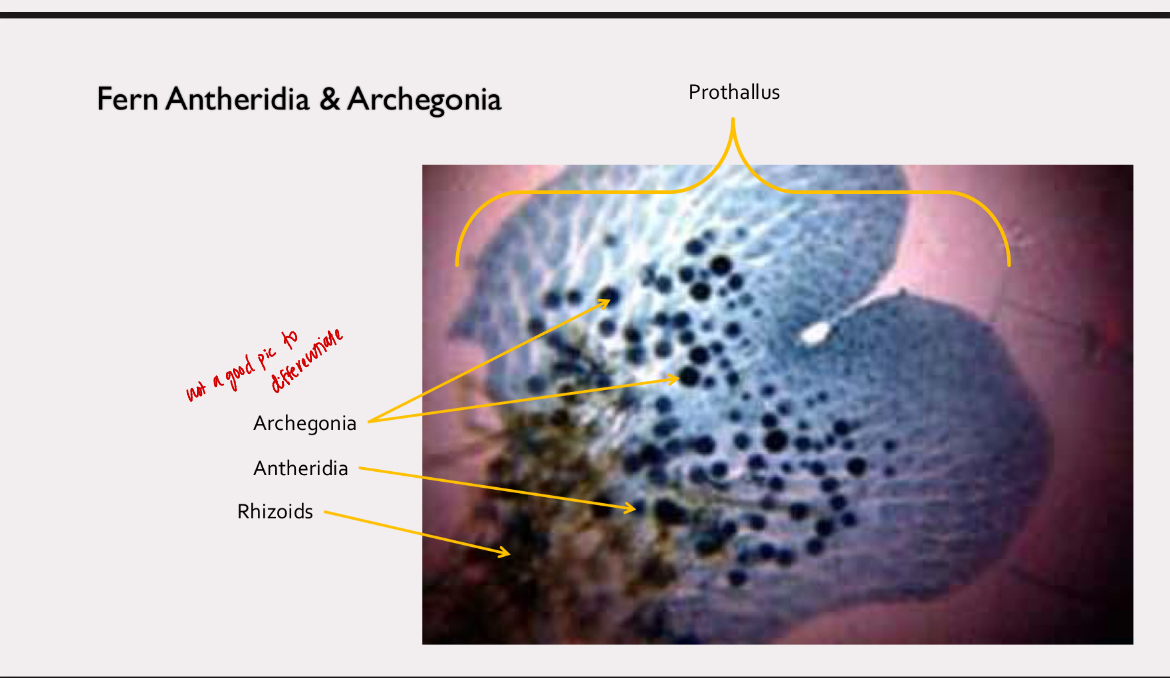
fern young sporophyte
lower tracheophyte
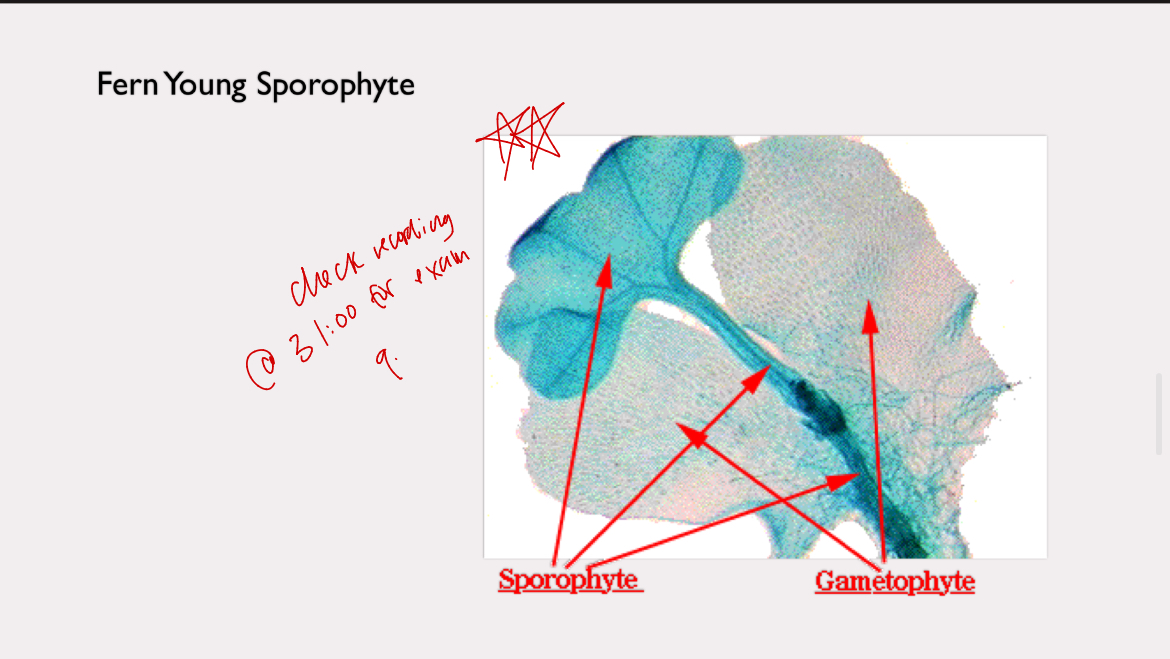
higher tracheophyte
higher adapted to land, with lignin in secondary cell walls; have vascular tissue for taller growth; presence of tracheids in xylem; sporophyte dominant; gametophyte is reduced non photo and inside sporophyte; true; heterosporous - spores of different sizes and types. megaspores are eggs and micro are pollem
higher tracheophytes - gymnosperms naked seed
gemale gametophyte is inside ovulate cone; male is inside pollen cone; only has tracheids in xylem
higher tracheophytes - angiosperms flowering plants
female is in ovary of carpel; male is anther of stamen; have tracheids and vessel elements in xylem; double fertilization; some are carnivorous
conifers
phylum coniferophyta
conifers characteristic
include pines, firs, cedars, and spruce trees
usually occur in cooler climates
bear cones with woody protective structures
leaves are modified into needles
pine pollen
conifers
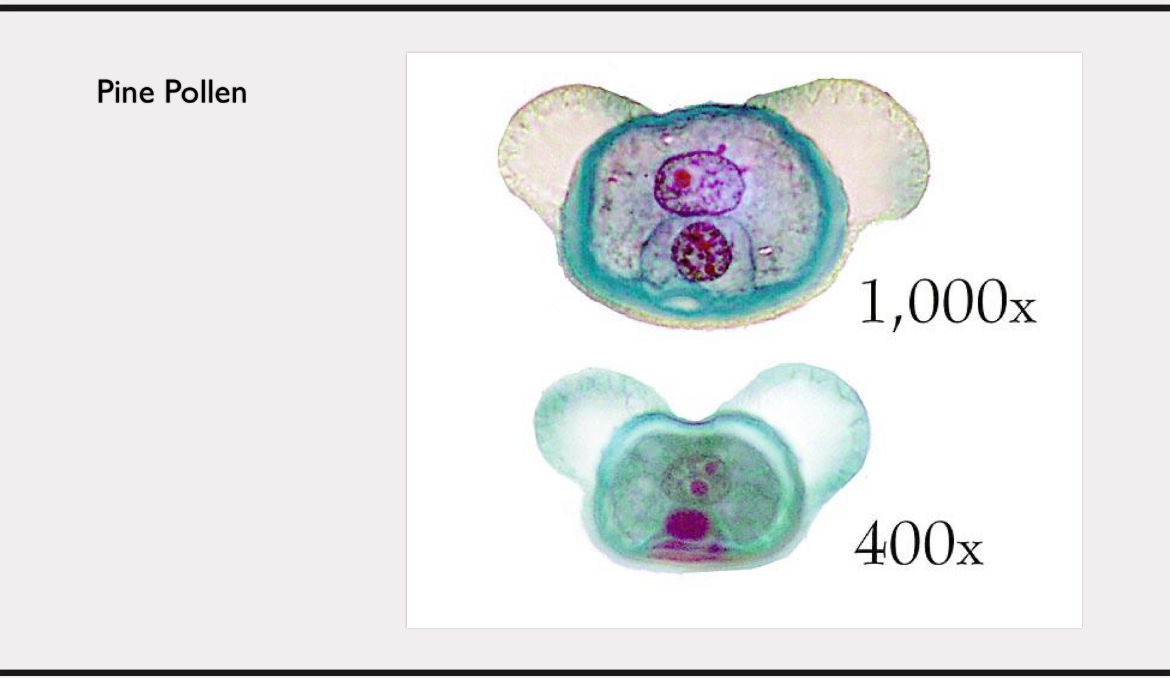
pine ovulate cone and staminate cone
conifers
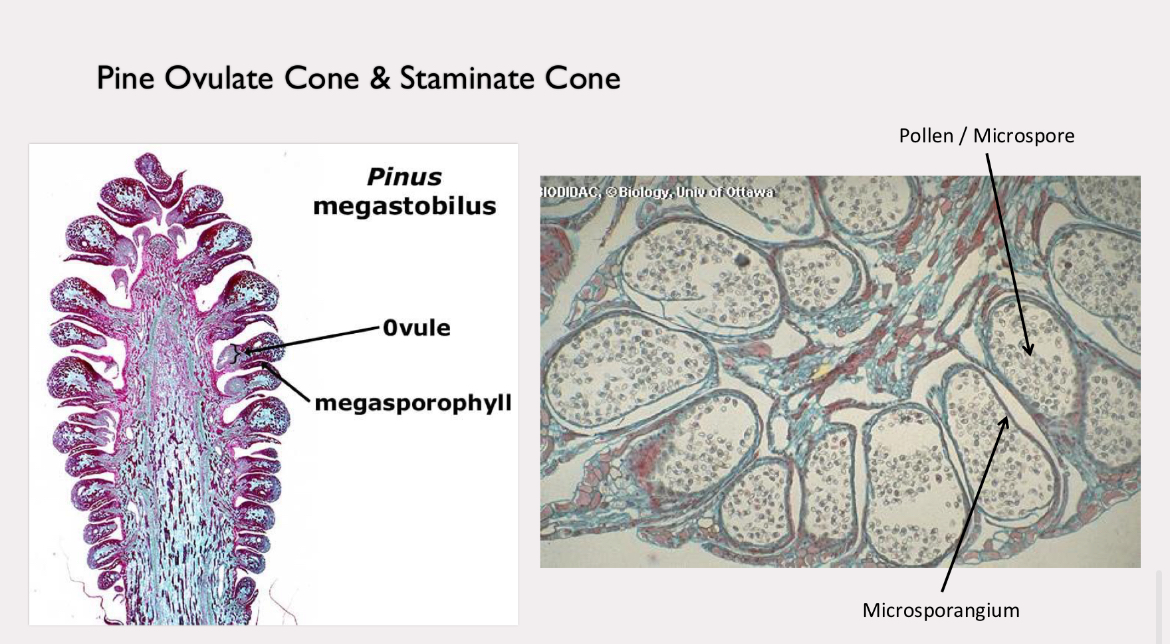
cycads
phylum cycadophytac
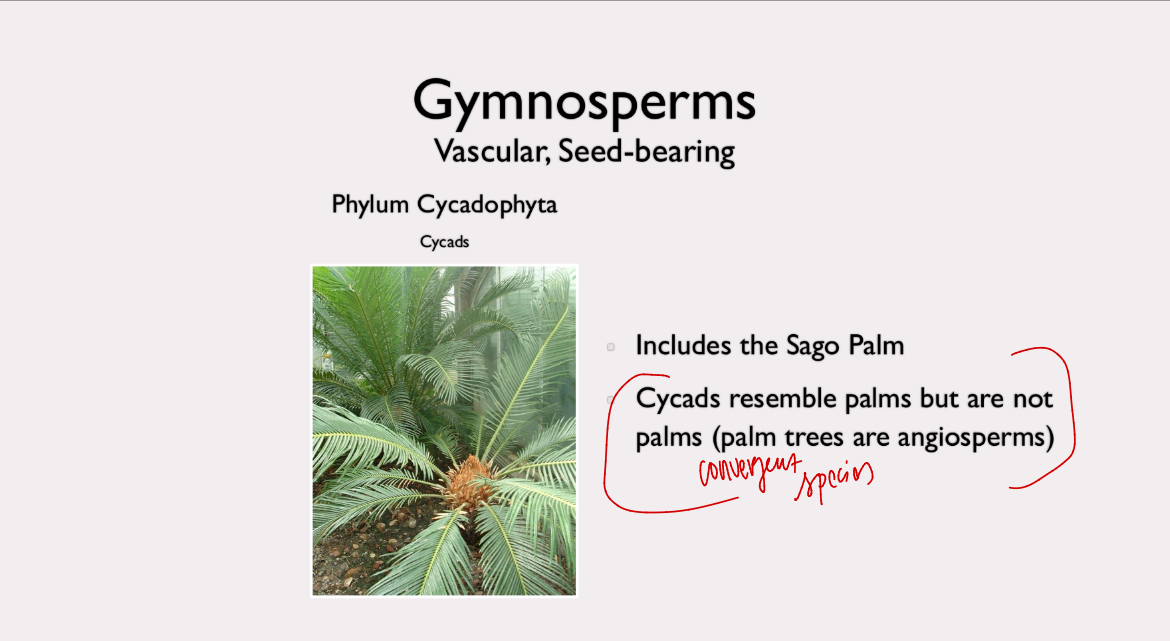
cycads characteristics
includes sago palm
resemble palms but are not (palms are angio)
maidenhair trees or gingkos
phylum ginkgophyta
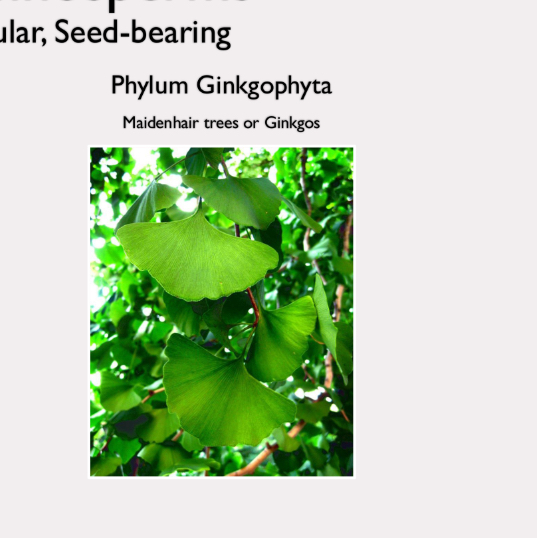
ginkgos characteristics
only one living species - Ginkgo biloba
deciduous leaves unlike other gymno
extracts used as an herbal supplement to boost memory
gnetophytes
phylym gnetophyta
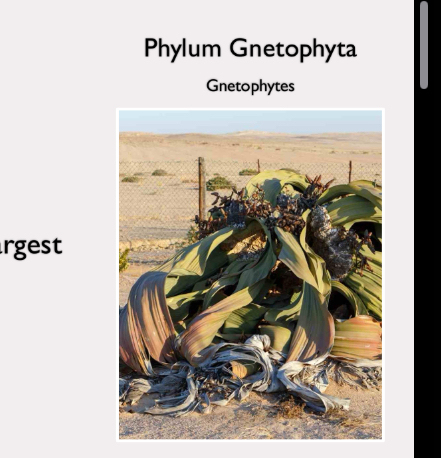
gnetophytes characteristics
includes mormon tea and Ephedra
species within genus Welwitschia has veyr large leaves
monocots
class monocotyledonaem
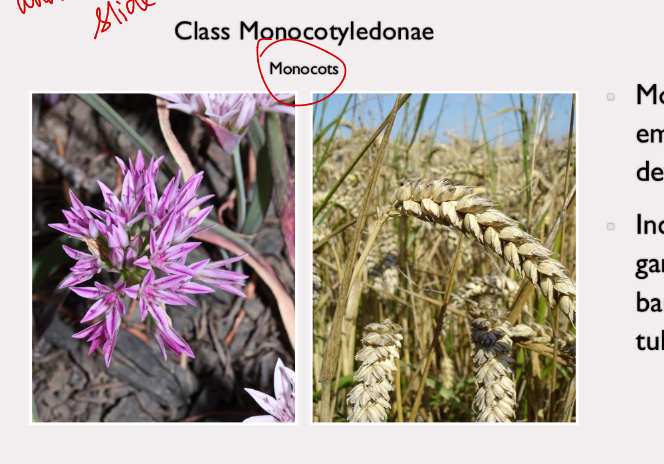
monocots characteristics
have one embryonic leaf during development
onions, bananas, pineapples, garlic, wheat, rice, corn, sugar cane, bamboo, lillies, daffodils, irises, and tulips
dicots/eudicots characteristics
two embryonic leaves
includes non-woody dicots like sunflowers (Helianthus), dandelions, chrysanthemums, and cabbage
woody dicots like magnolia, apple trees, maple trees, and macademia trees
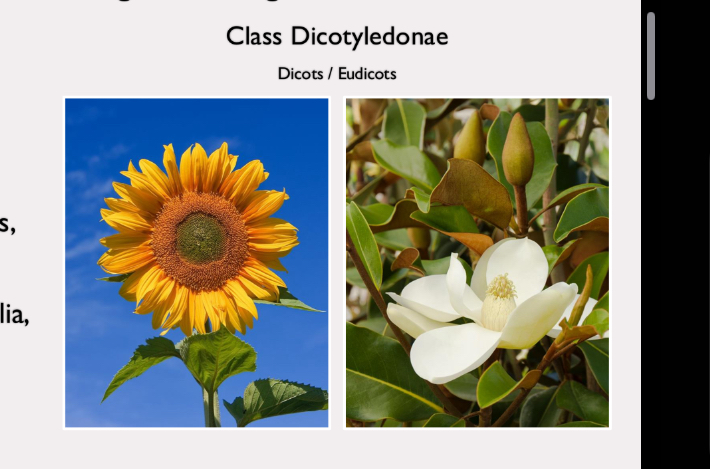
dicots/eudicots
class dicotyledonae
flowering plant life cycle
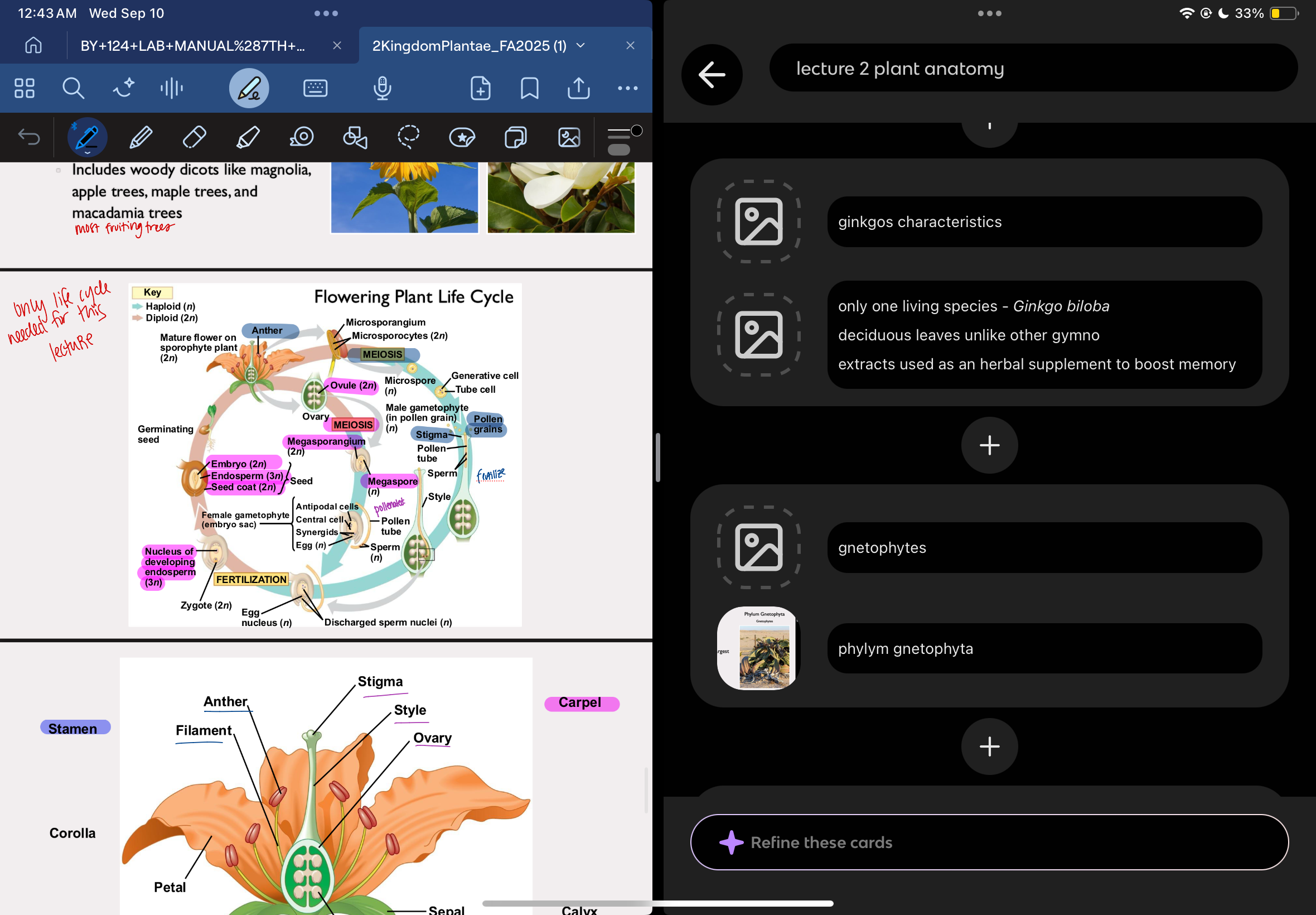
flowering plant anatomy
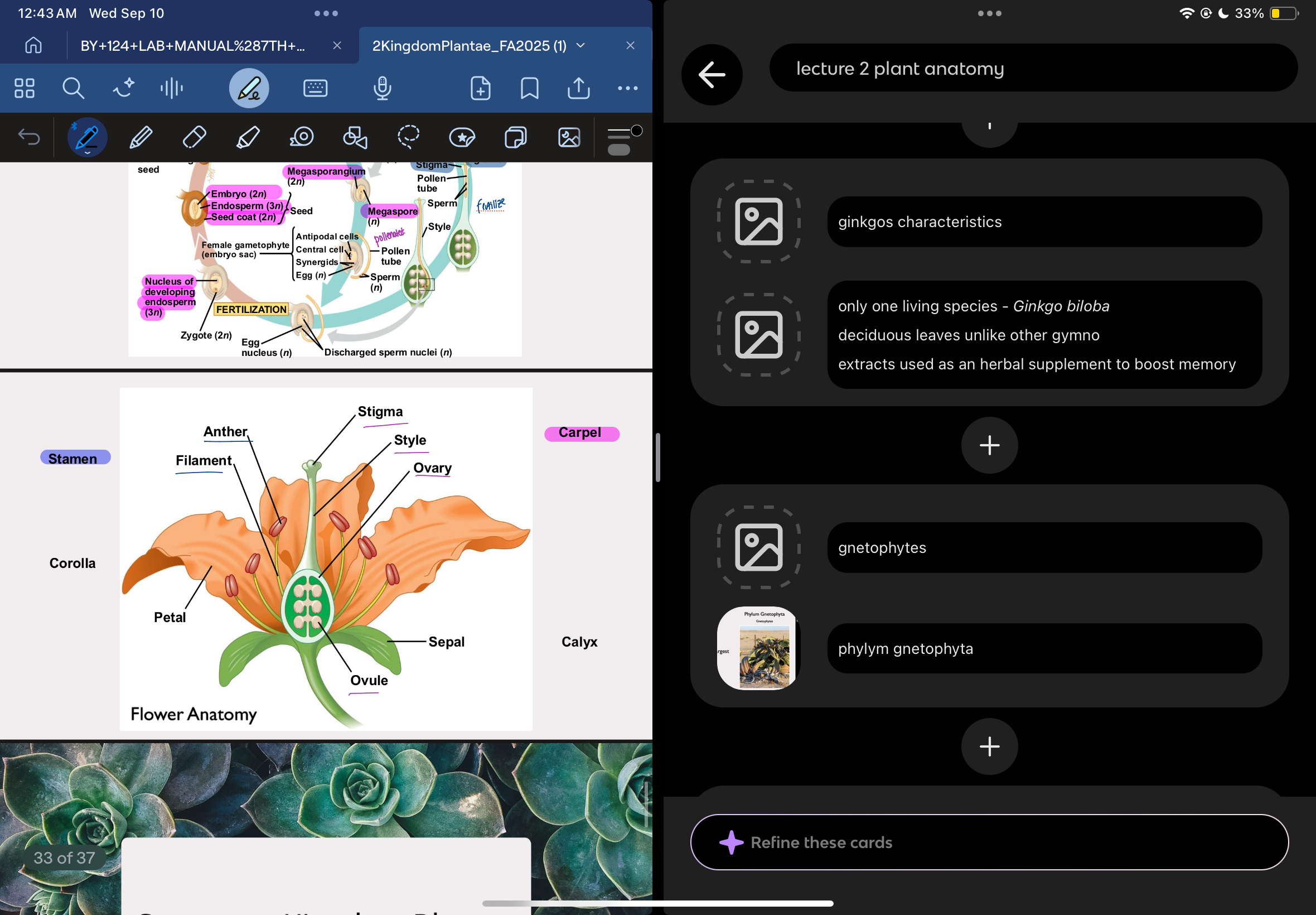
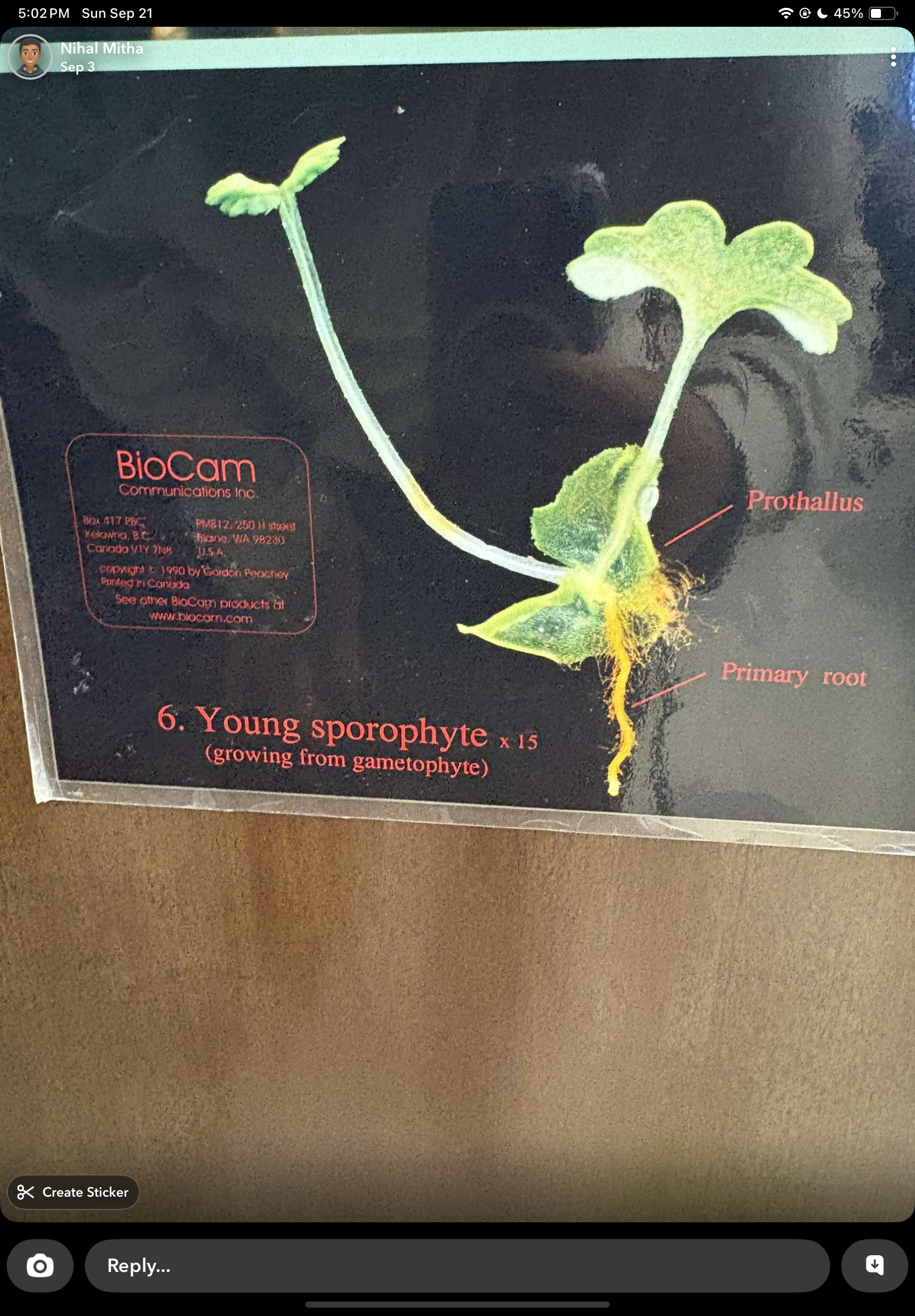
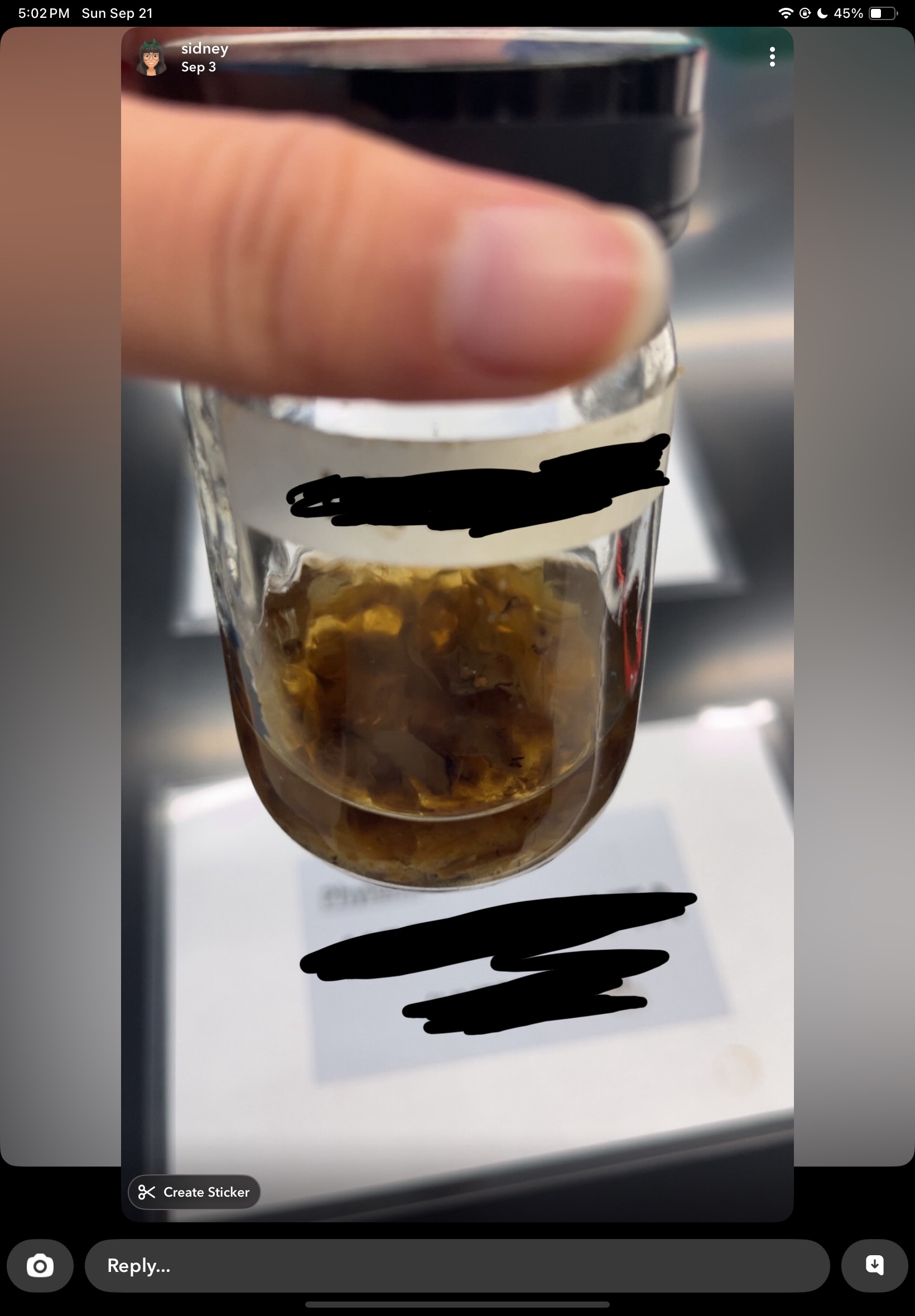
Hepatophyta-liverworts
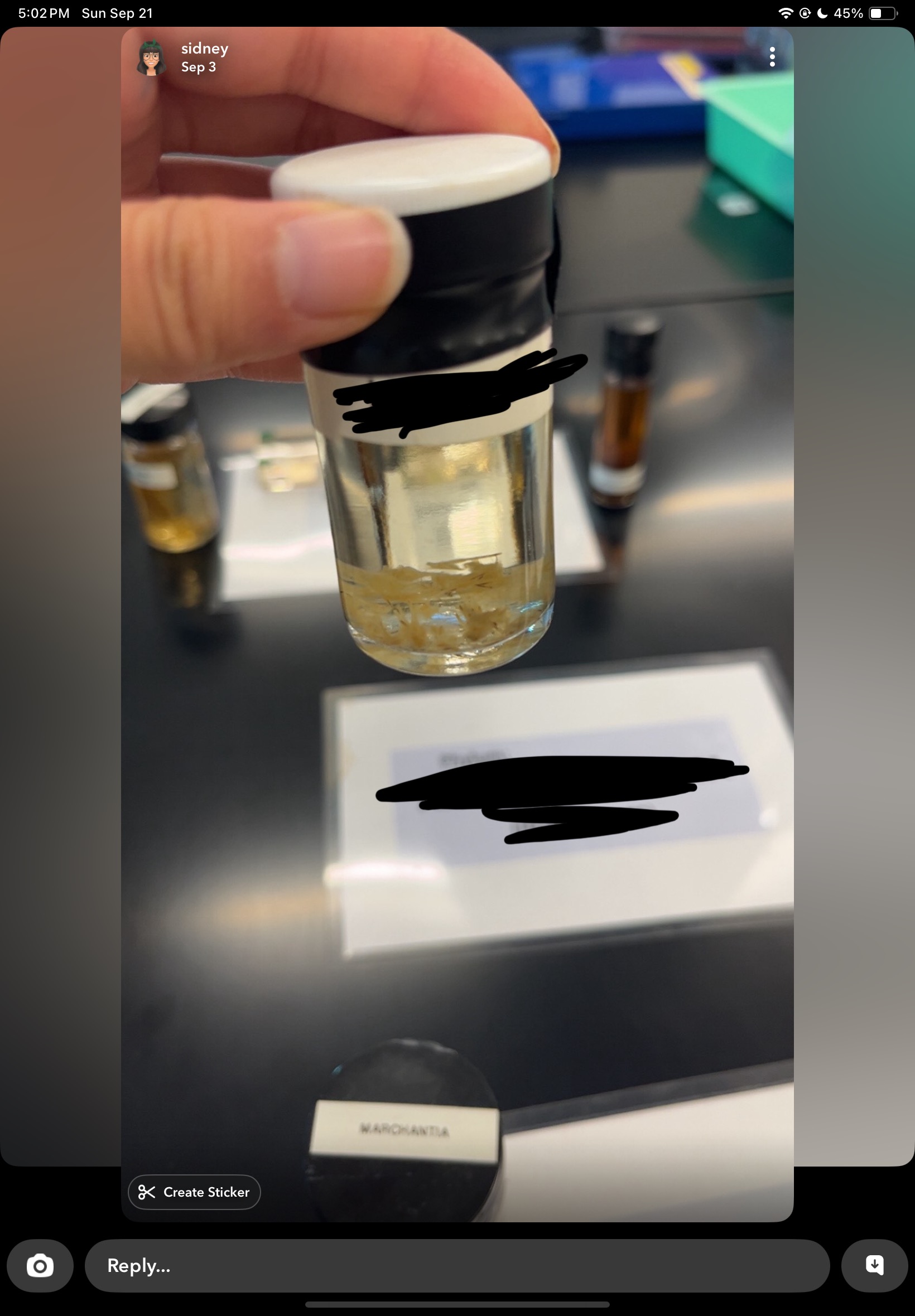
Anthocerophyta- hornworts
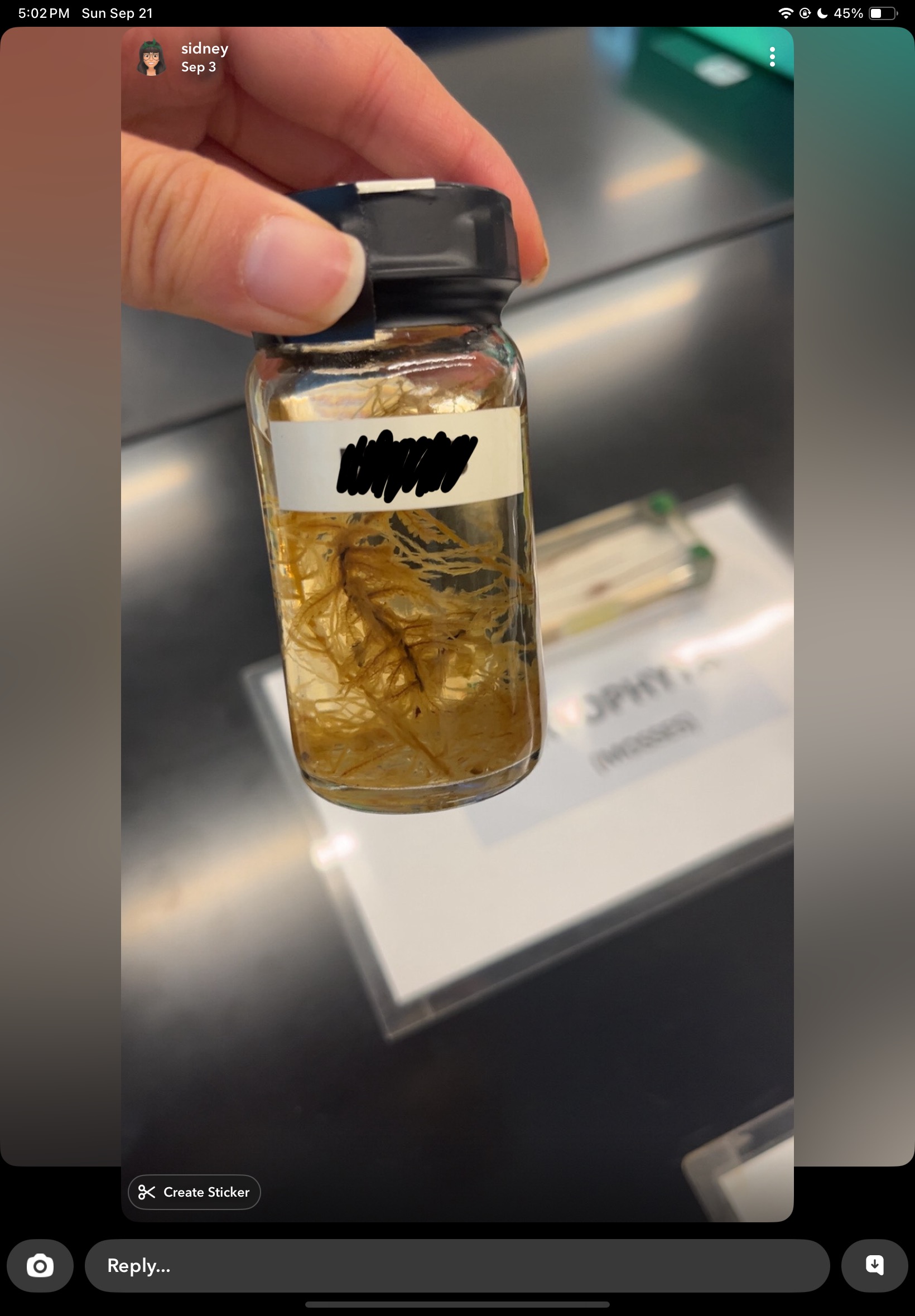
Bryophyta-moss
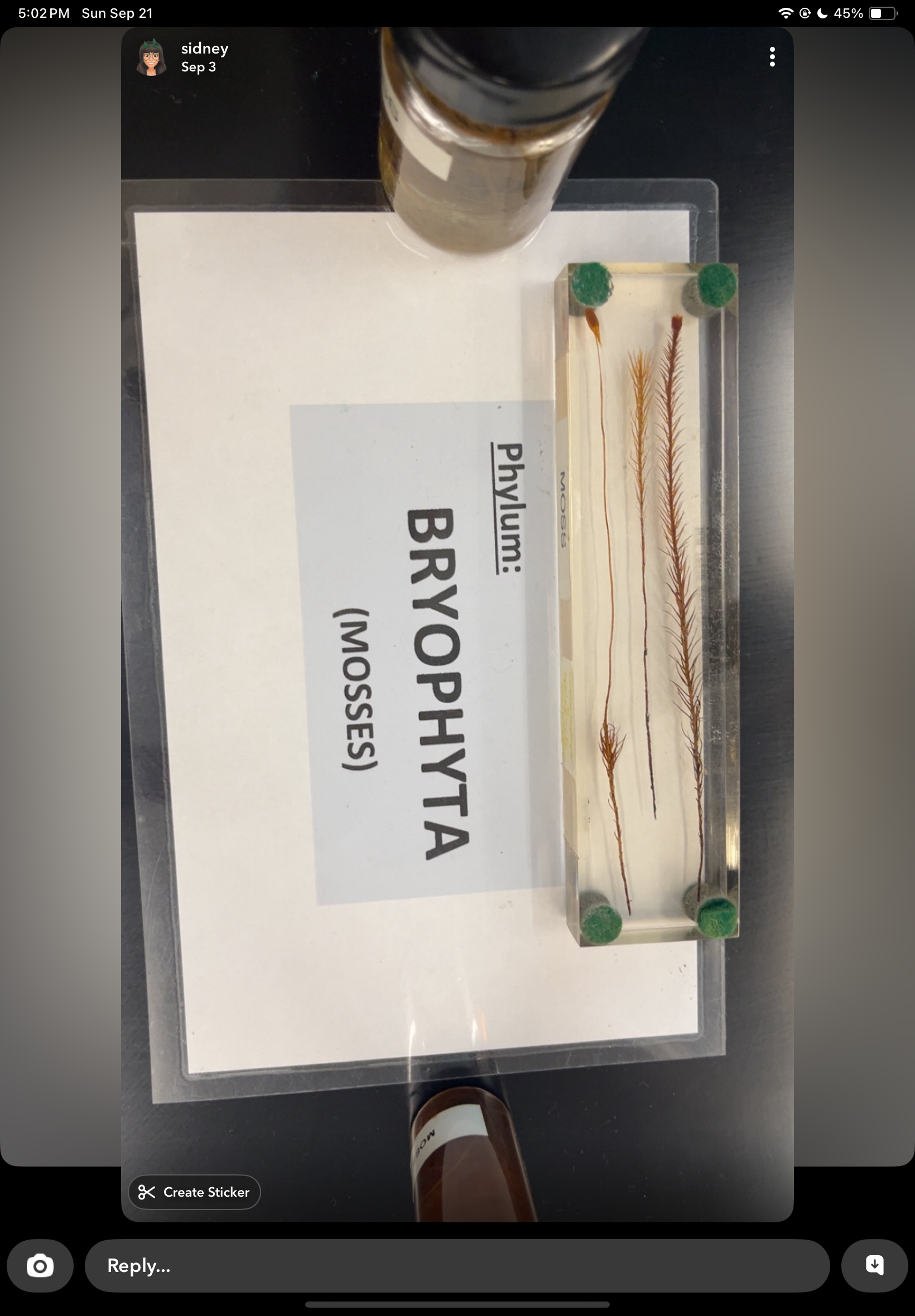
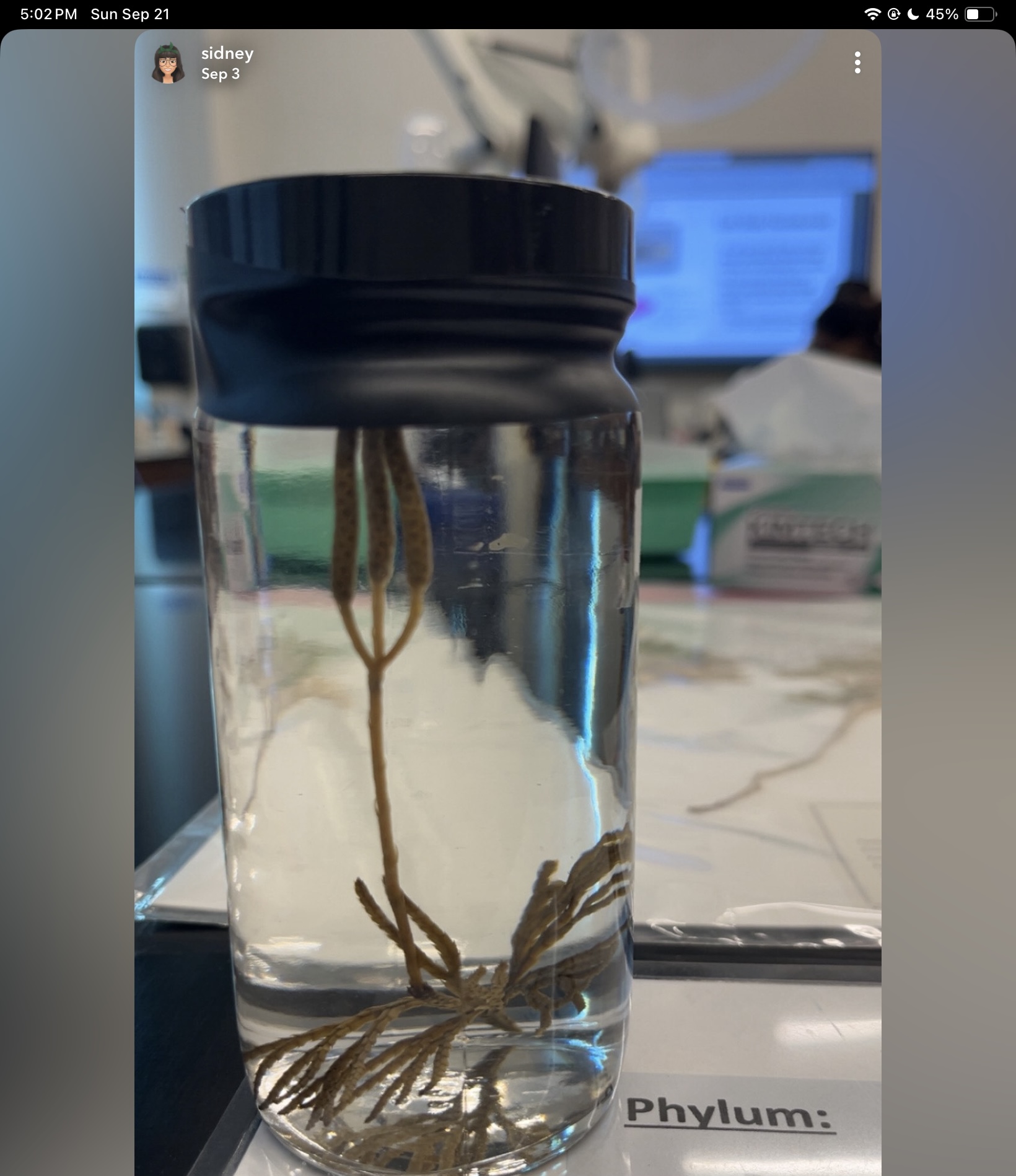
Lycopodium
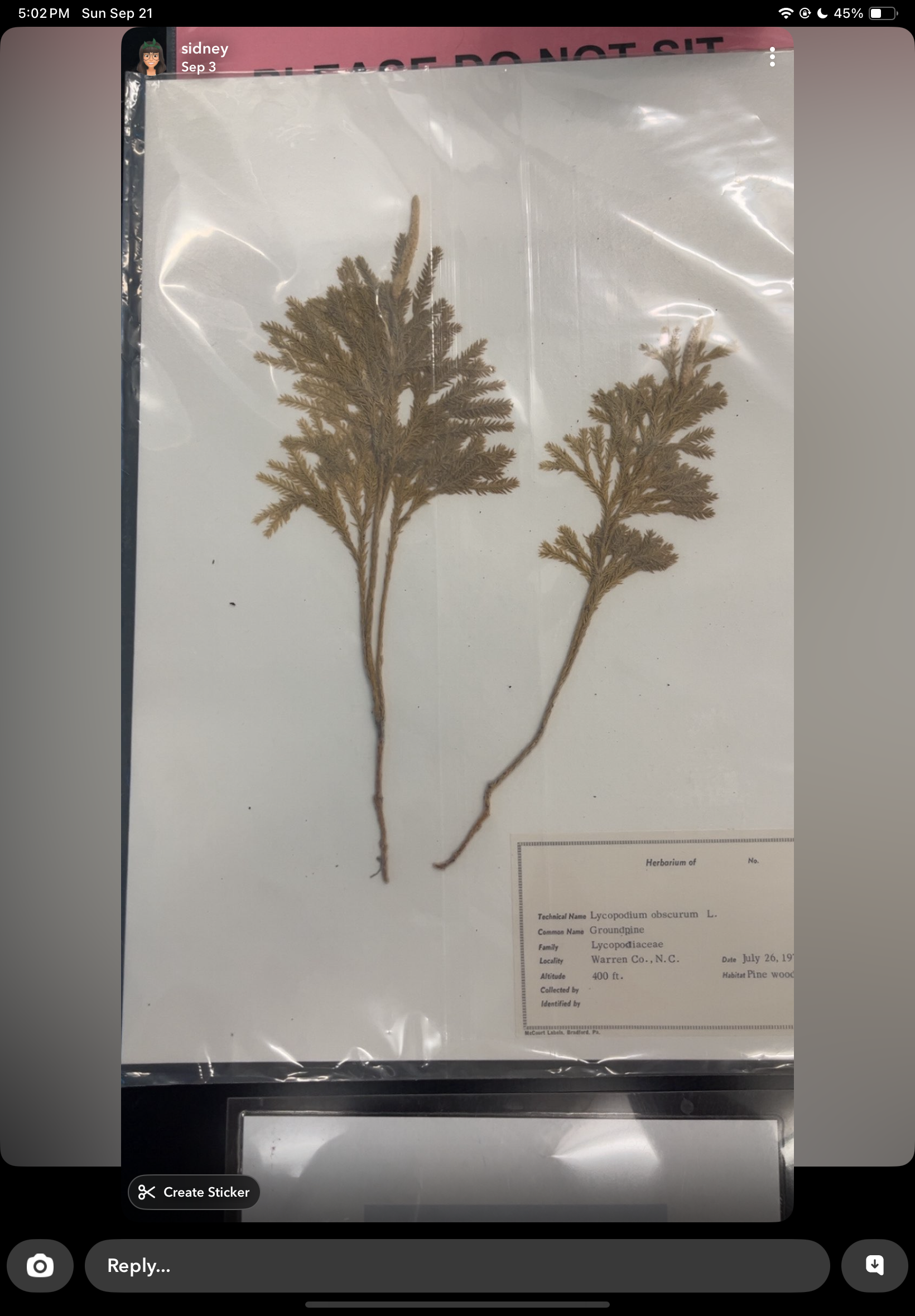
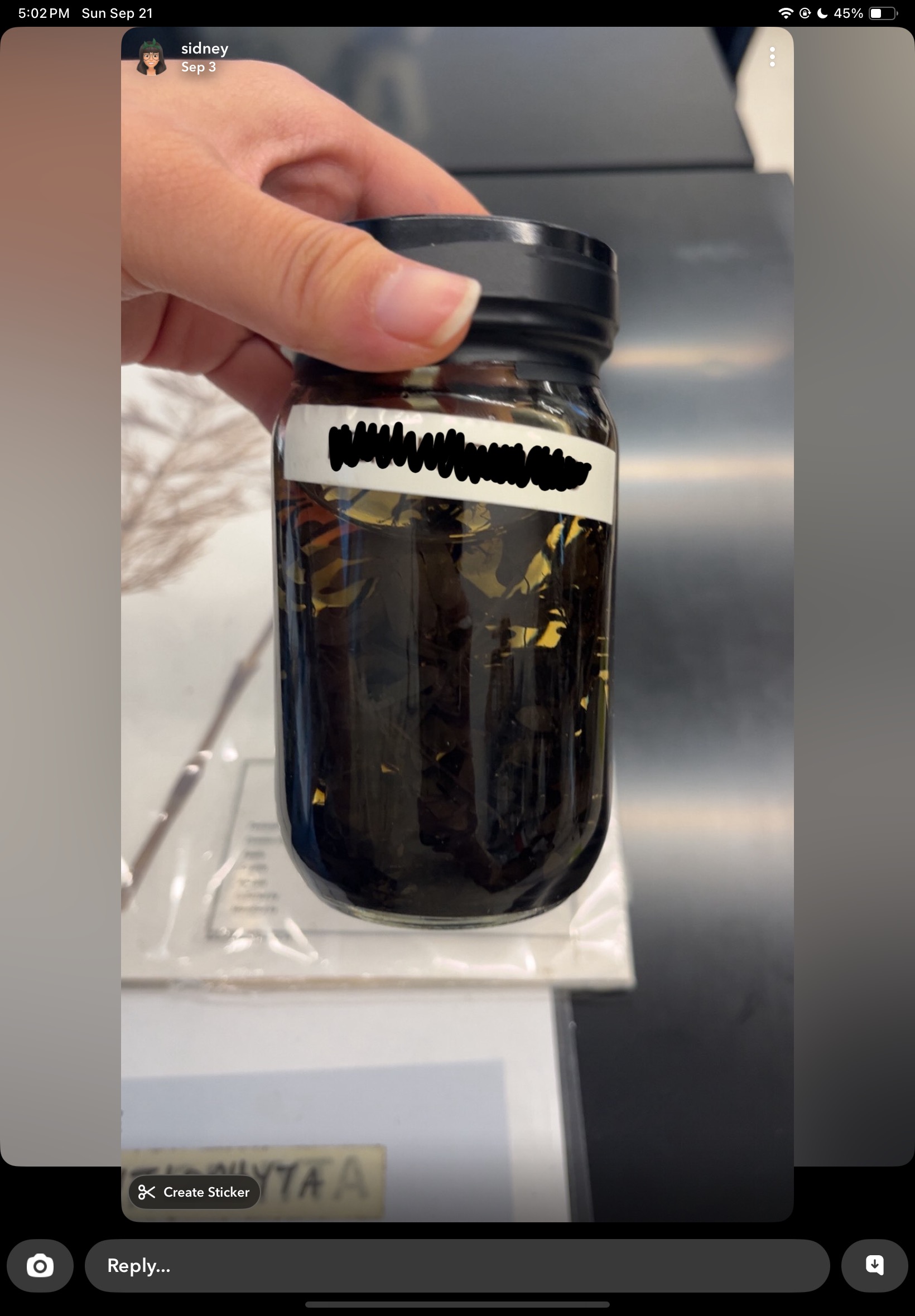
Fern fronds
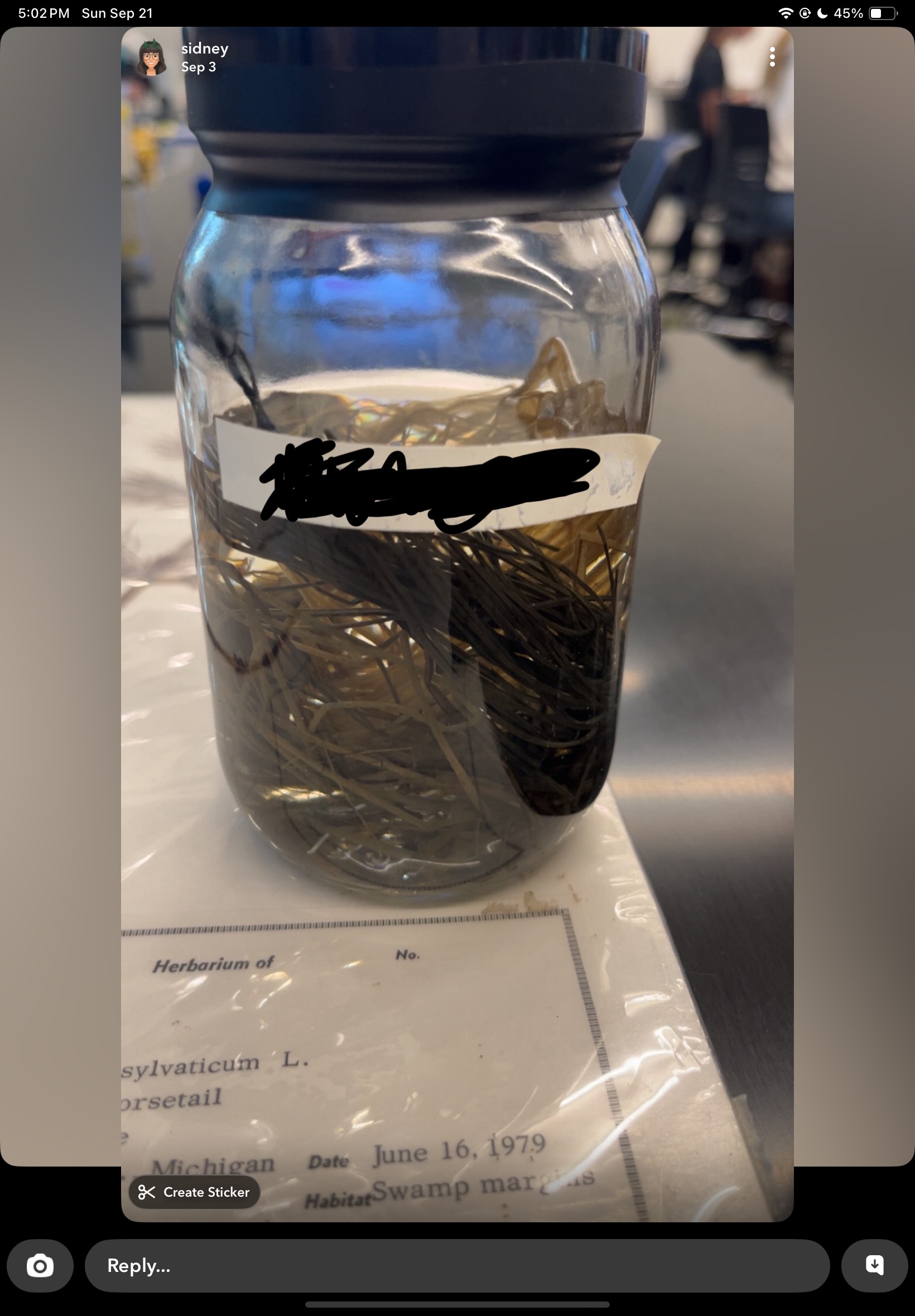
Fern isoetes
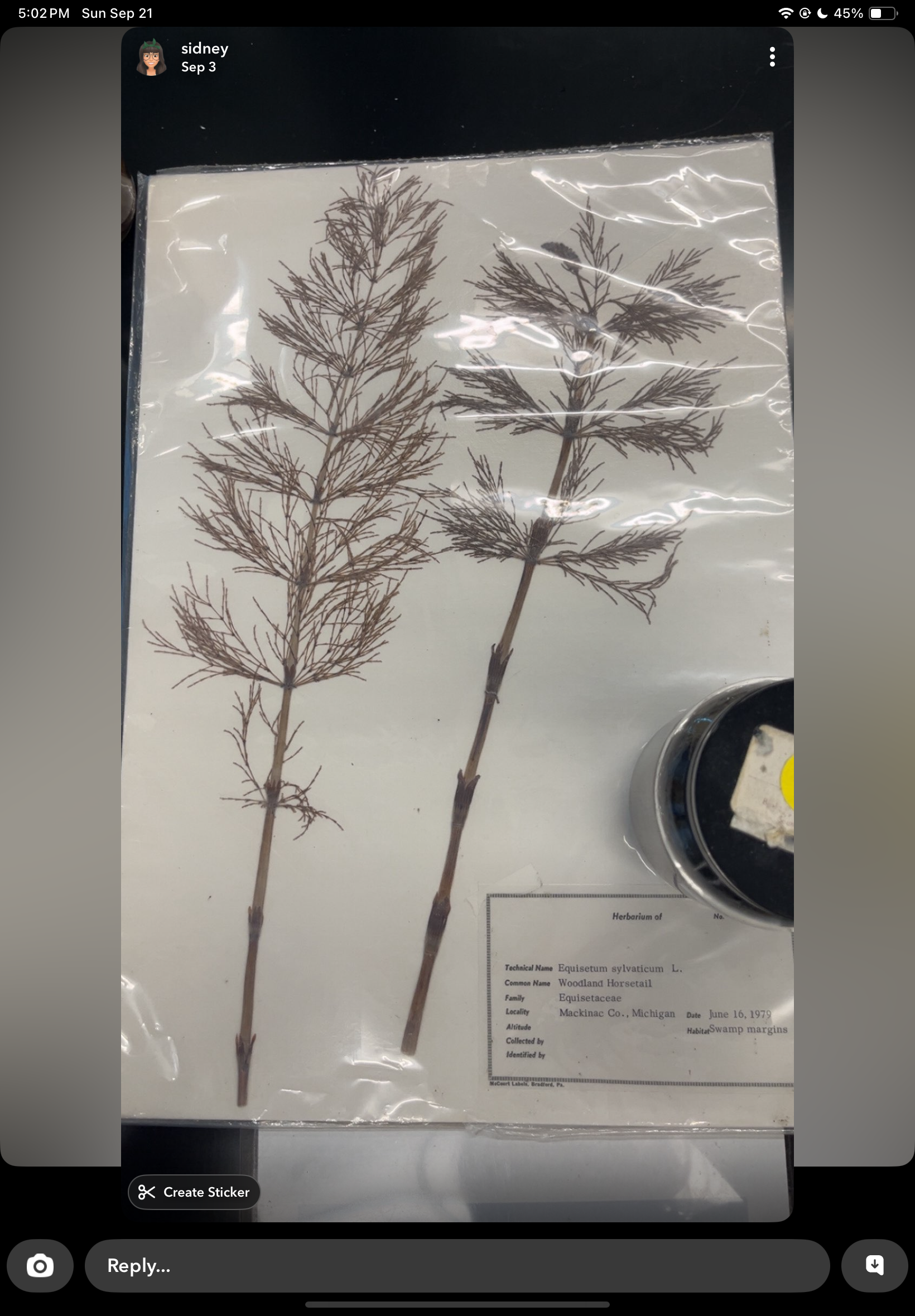
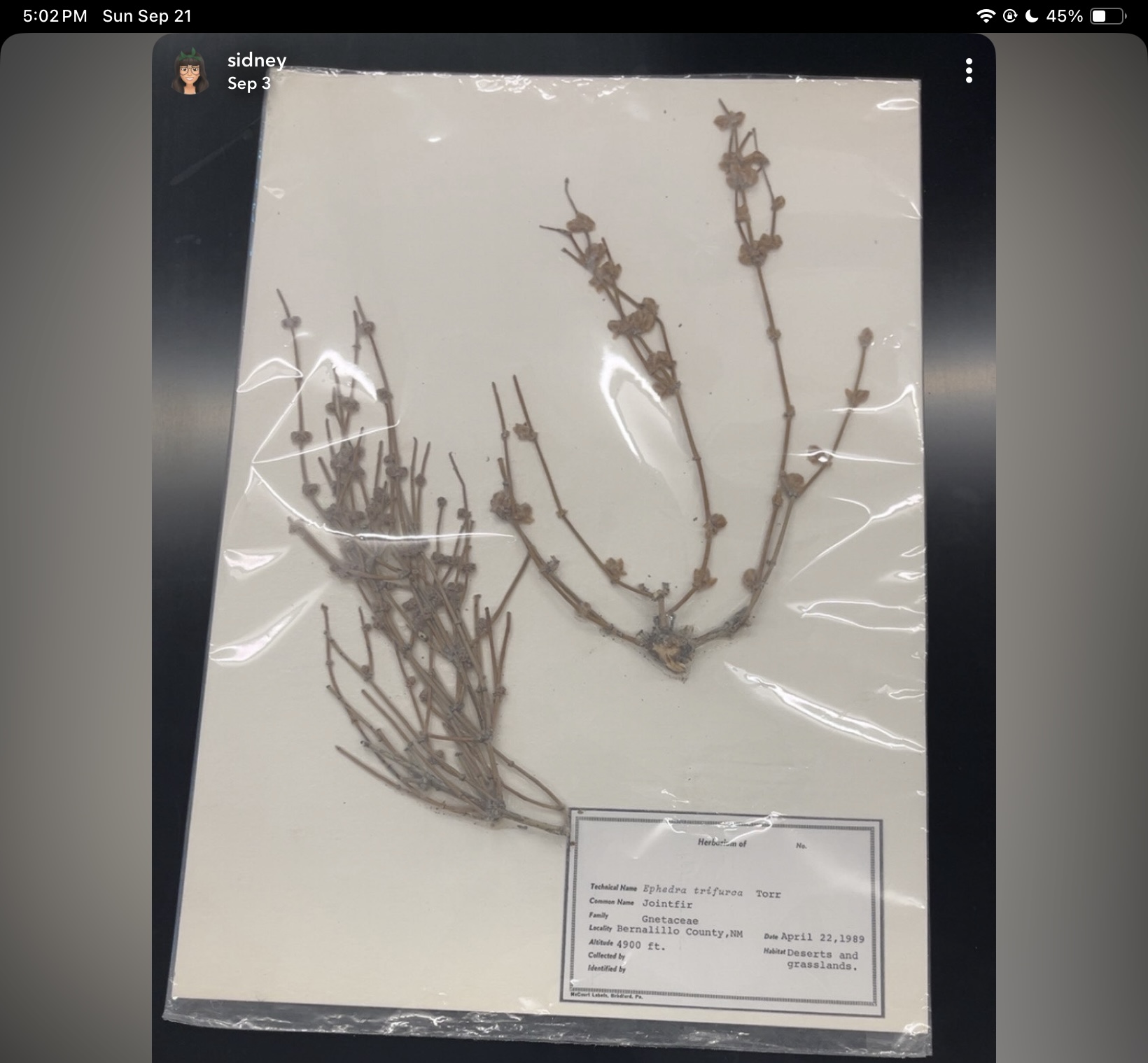
Phylum cycadophyta sago palms and cycads
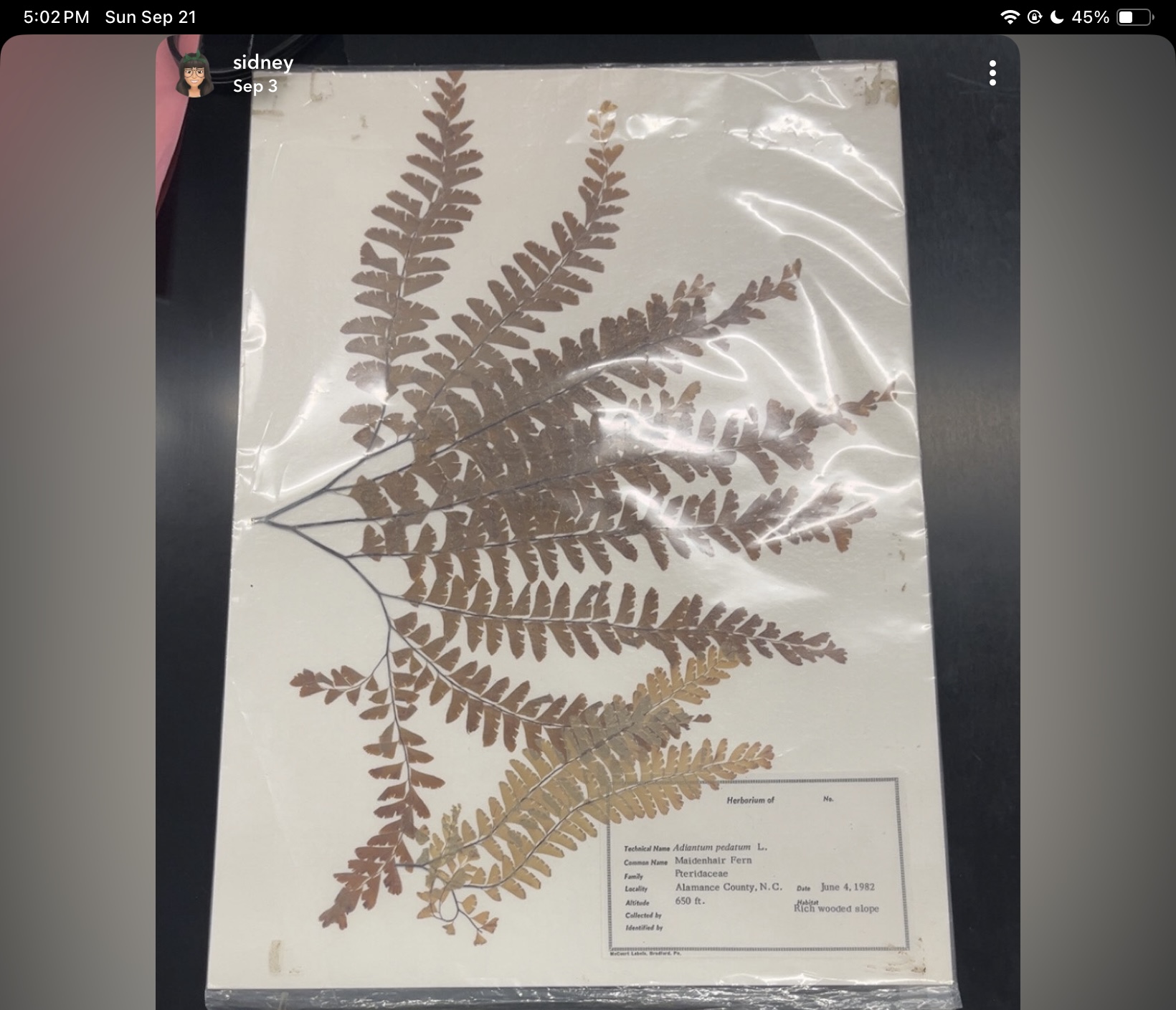
Phylum gnetophsta. Genetophstes, ephedra, and Mormon tea
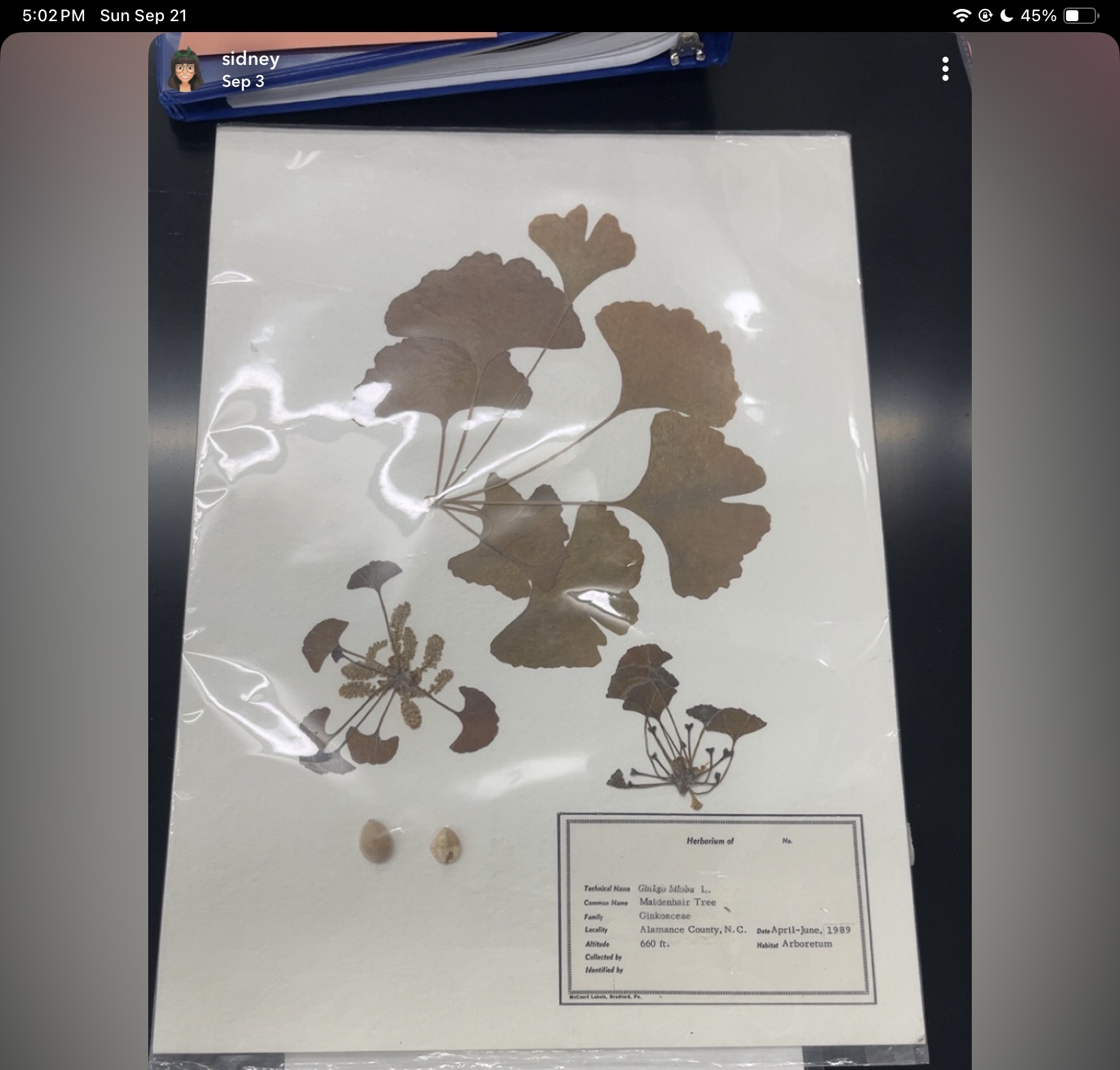
Phylum ginkgophyta - maidenhair tree, ginkgo
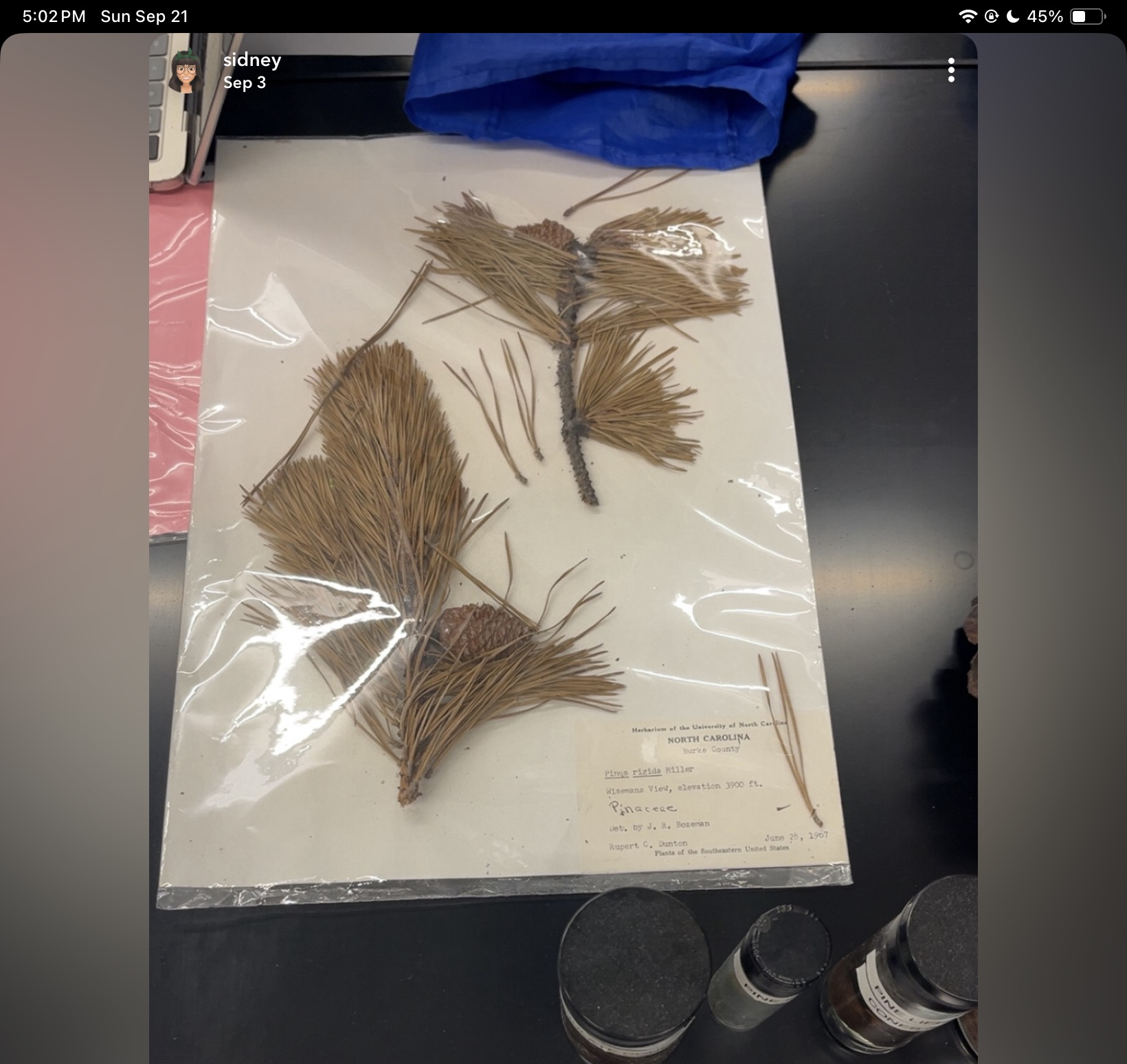
Phylum coniferophyta - firs cedars, pines, spruce
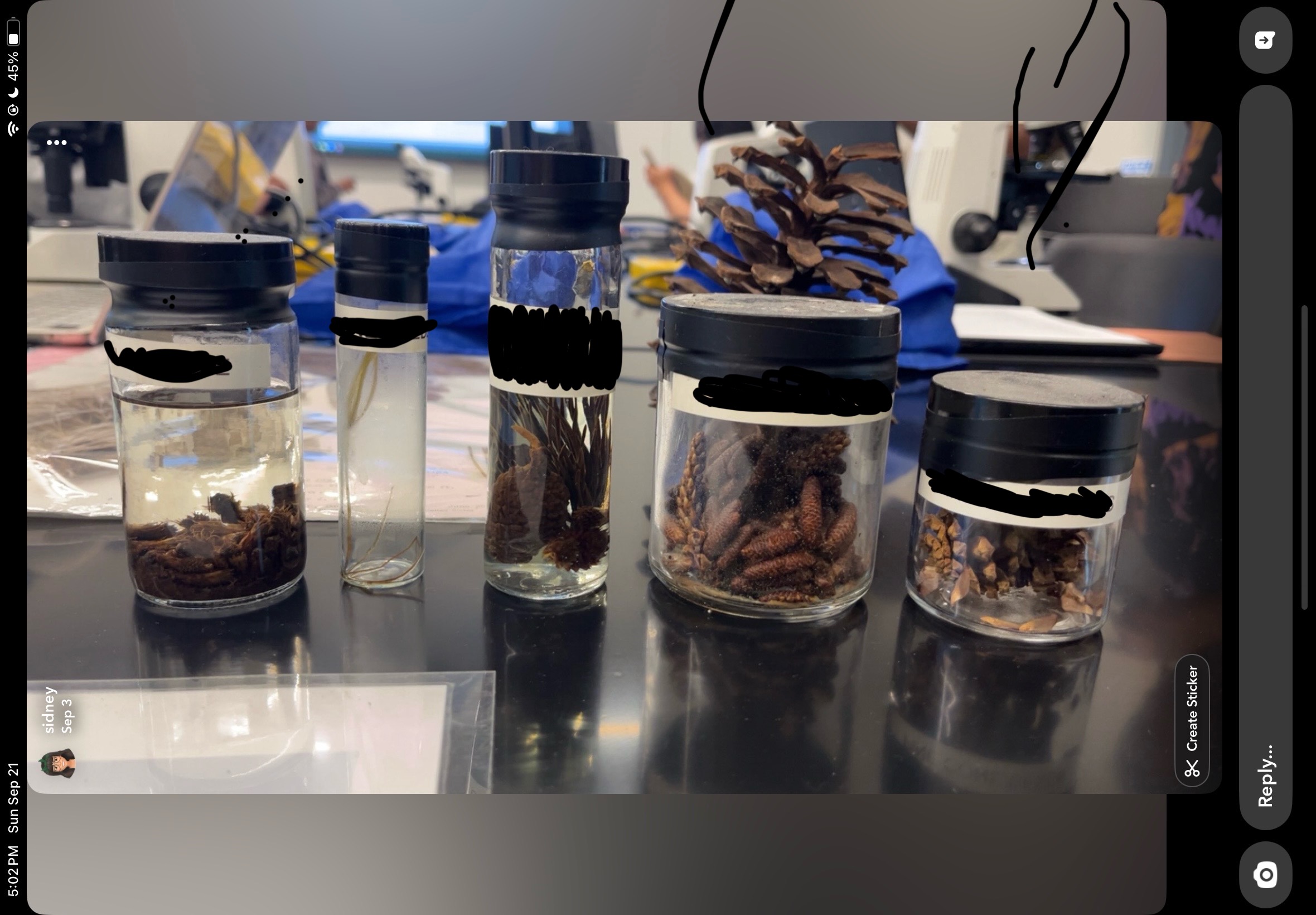
Ovulate cone
Pine seeds
Pine life cycle cones and twigs
Pine staminate cone
Pines cones seeds
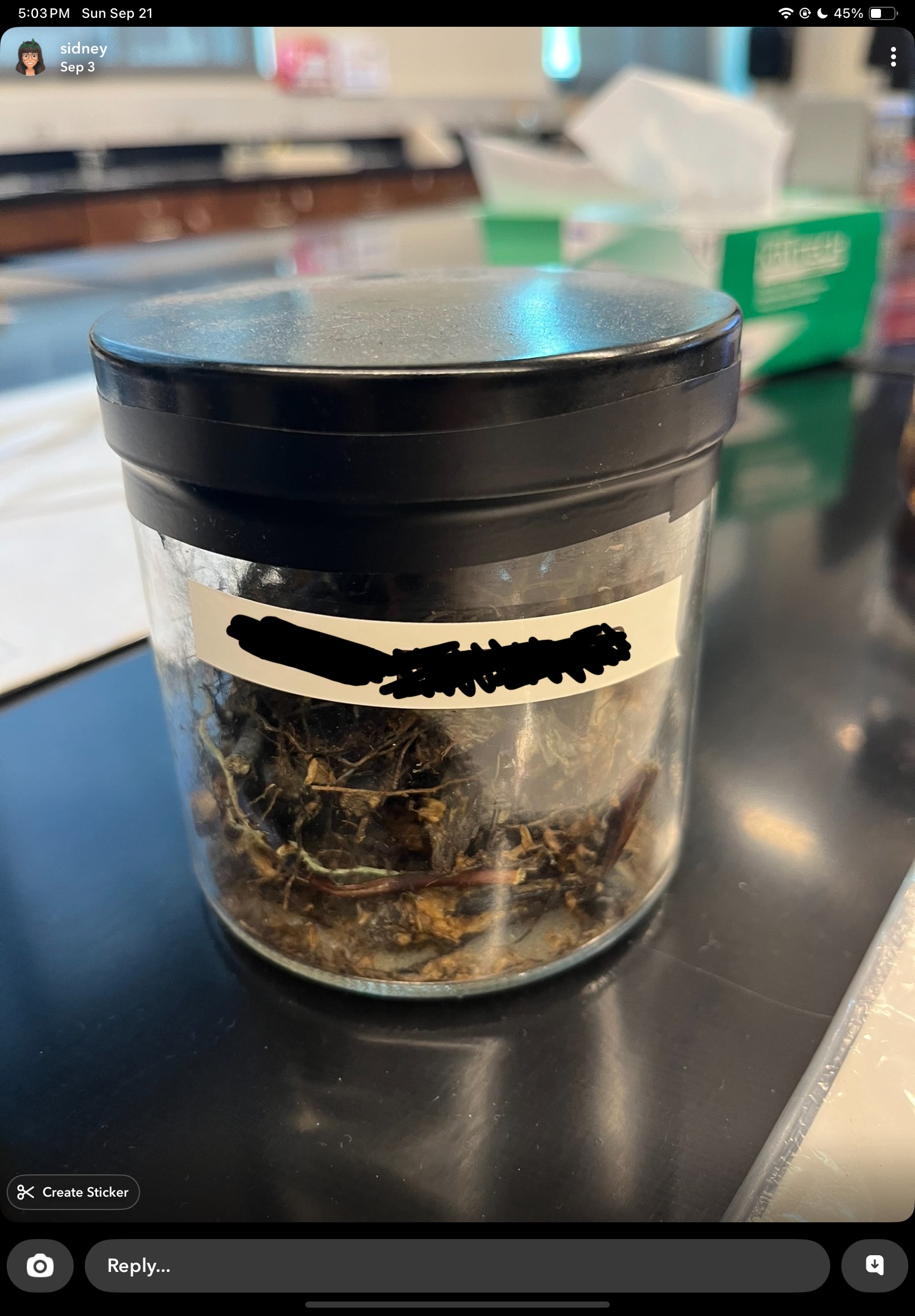
Fern rhizomes
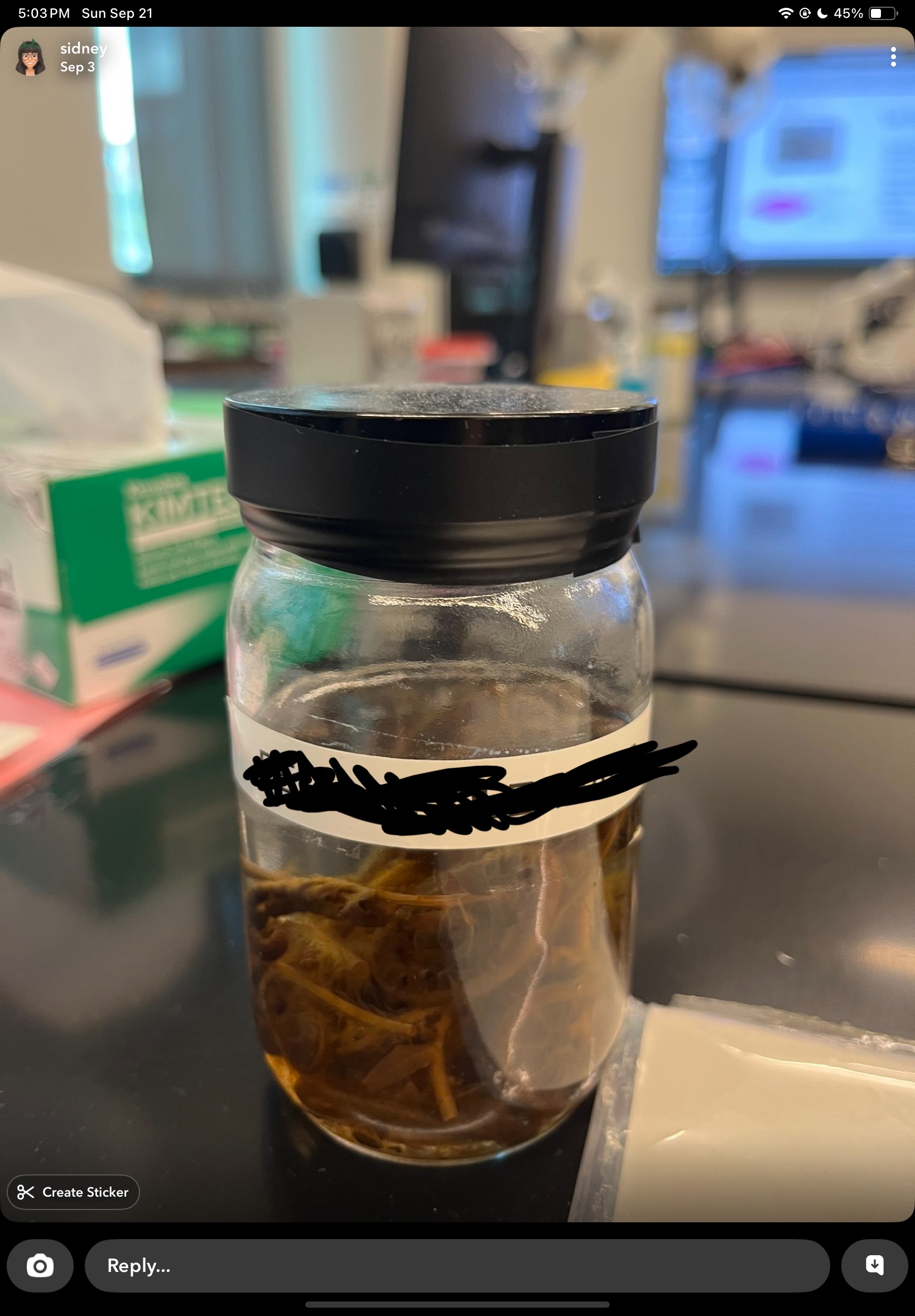
Fern fiddleheads
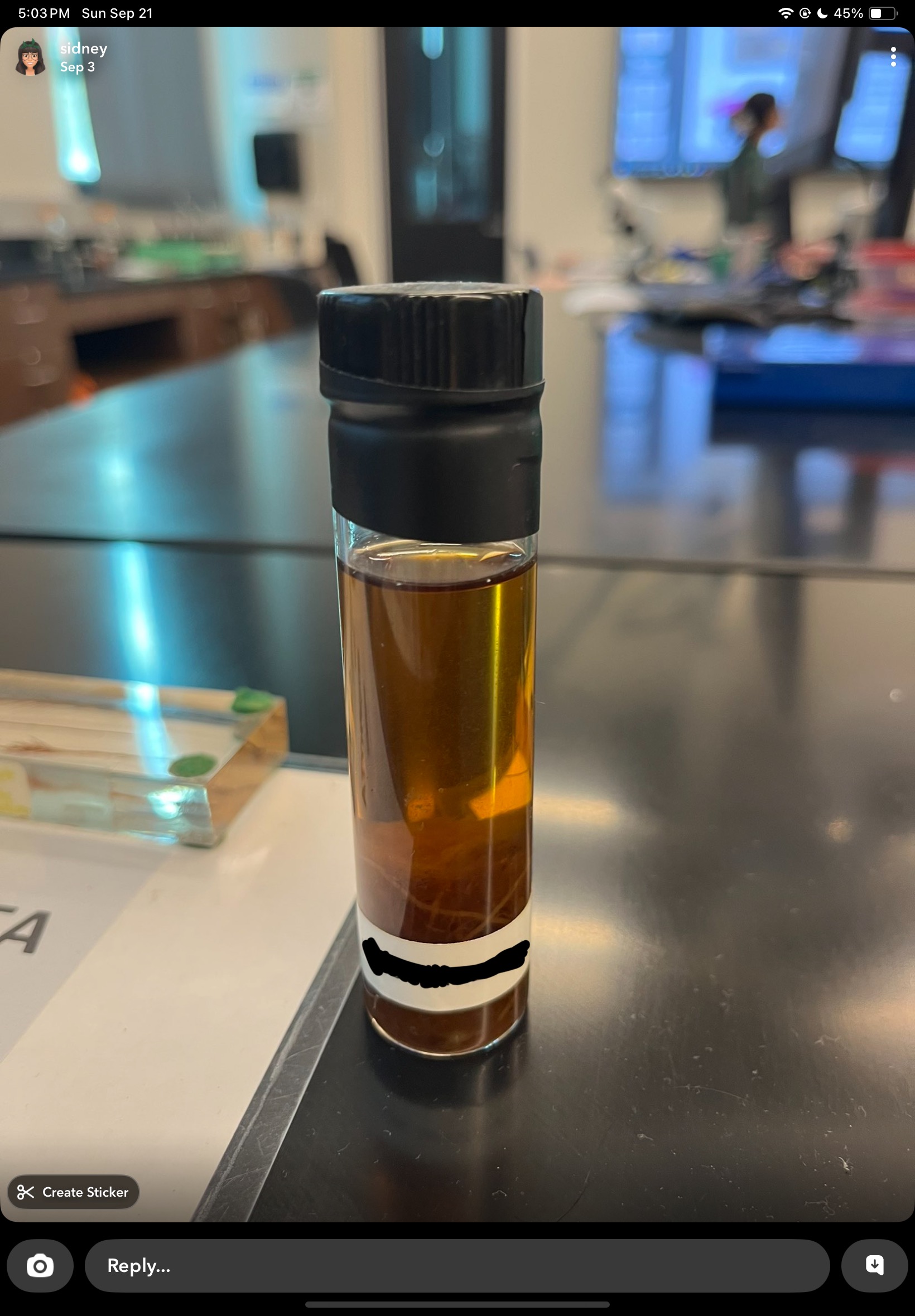
moss antheridia